#alan smith mention
Explore tagged Tumblr posts
Photo


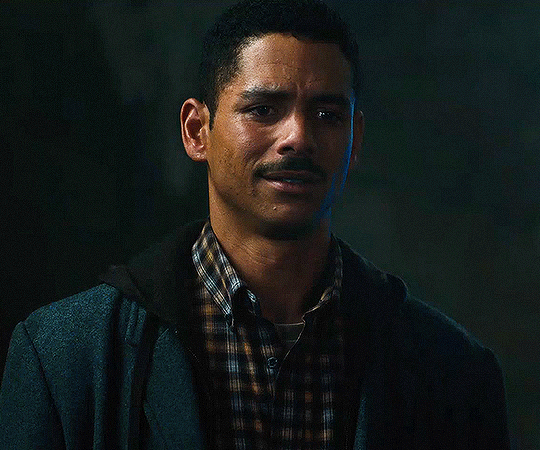
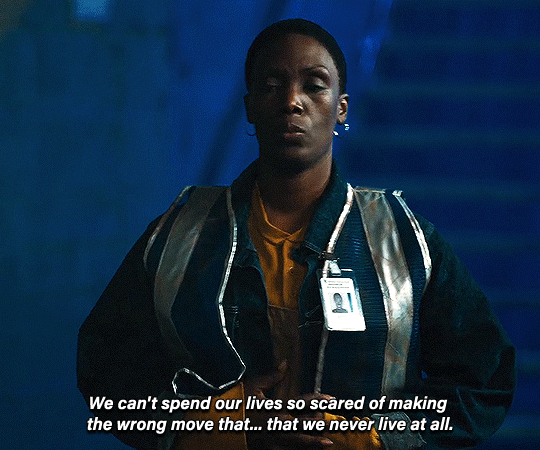
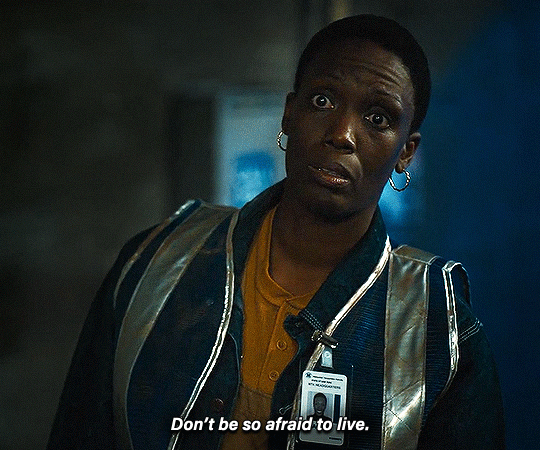

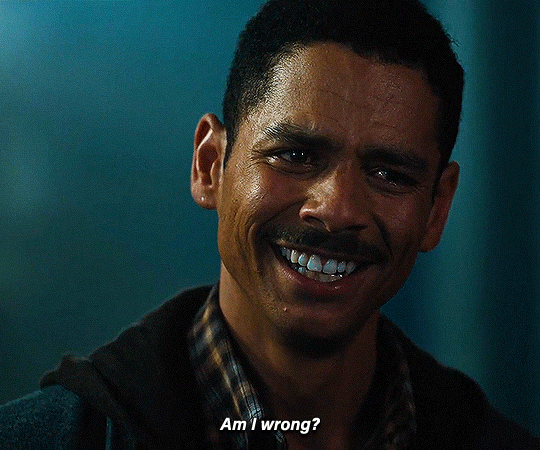
RUSSIAN DOLL : Matryoshka (S2.E7)
#russiandolledit#netflixedit#russian doll#alan zaveri#charlie barnett#carolyn michelle smith#dailynetflix#cinematv#tvedit#*#💔#suicide cw#suicide mention
422 notes
·
View notes
Text
feel like psych deserves more credit for manifesting guest stars from almost every single property it referenced. i know plenty of shows have pop culture relevant guest stars but none of them make references that are so very specific and none of them get 99% of their references to actually show up. like psych will throw out a name exclusively for the bit and then an unpredictable number of episodes/seasons later that person will literally show up as murderer/victim/random extended family member of the week with no comment. george takei. william shatner. cybill shepherd from moonlighting. almost every single actor from the breakfast club (one of them recurring!). biff and doc brown from back to the future. dr frankenfurter himself. literally carey elwes. john cena??? john rhys davies. half the cast of twin peaks. the original "come on son" guy. alan ruck. michael rooker. both leads from she's all that. winston from ghostbusters. bud's mom from the cosby show. curt smith from tears for fears (who also sang live with them at an event, like, twice). they mentioned billy zane and val kilmer so many times per season that through sheer willpower they got billy zane and val kilmer to both show up in their series finale. those guys committed to their bits so hard that they ended their show with one of the most diversified and stacked cameo rosters in tv & thats honestly so funny and iconic of them
#its like the opposite of that thing bbc shows do where every guest star is just the same 3 british people u always see#with psych u can literally never guess which bad bitch is gonna walk thru the door next#psych#phil.txt#can u tell im procrastinating finishing the last chapter of the zombie au by writing this post
2K notes
·
View notes
Text
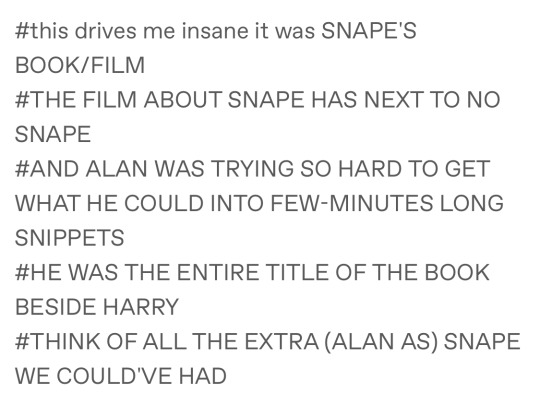
YOU GET IT. This book is really about Harry's relationship to Snape and foreshadowing that Snape's betrayal isn't all it seems to be. The Slughorn party scene makes me angry actually because Snape’s only purpose in it is to be the straight man in a comedy bit. He serves no narrative purpose (even the message he conveys has no purpose - it’s not like Dumbledore was cancelling an appointment, he’s just saying “we had no plans to meet and continue to not have any. k bye” but doing it through Snape for... some fucking reason ¯\_(ツ)_/¯). In the film ABOUT HIM where he’s only in four scenes one of them renders Snape’s presence narratively functionless. He's in that scene so the audience can get a laugh when McClaggen pukes on his shoes (and the timing of that whole bit is painfully clumsy and slow, because the films don't respect the audience's intelligence and assume them to be clumsy and slow too).
And you know what, I know I didn’t include the Sectumsempra scene and I’ll tell you why: because what’s the point? Snape shows up and says nothing. He heals Draco. He doesn’t hold Harry accountable???????? He doesn’t guess how Harry knew this uncharacteristically dark spell that isn't taught in class or punish Harry or even ask him “hey so about this student who’s bleeding to death in this bathroom where the only other person was you?” Snape's purpose in that scene is to fix Harry's mistake. Which is the complete antithesis of how he relates to Harry.
I’m frothing at the mouth at how Steve Kloves went out of his way to strip this scene of any substance for no discernible reason other than to handicap his own plot and character development??? Severus FUCKING Snape, who spends every book antagonizing and punishing Harry, just lets him go and fixes his near-fatal fuck-up without a word????? And Harry “slashed up a fellow student” Potter just walks away and is like, “that was messier than the time I fully murdered a teacher in my first year but anyway, guess I better do as Ginny says and go with her to hide this book, maybe we can hook up after,” and that’s just… fine. Which tracks with the rest of Kloves' sloppy writing, since he doesn't show Harry getting attached to the book, let alone the Prince, he just carries it around and reads it sometimes. And even when he does that we don't see him get immersed in it, he's still fully aware of what's going on around him and actively participating in conversations while perusing it. If you watch this film (or any of them) and think about every scene in the context of "what if I hadn't read the book and didn't have the understanding it gave me for what's happening or the emotional attachment to the characters" then you'll see how Kloves took a vibrant, colorful landscape and turned it into a hand-drawn cardboard cutout.
The purpose the Sectumsempra scene serves in the book is manifold and complex:
Harry's trust in the Prince is shaken and he sees an ugly side to this unknown person he's anthropomorphized into a kind of friend.
This is paralleled with Snape appearing at that exact moment, because foreshadowing.
Harry, who at the end of the previous book wanted and failed to use an Unforgiveable on Bellatrix Lestrange, experiences what it is to enact violence on someone for the first time and is deeply shaken by it.
Snape DISCOVERS THAT HARRY HAS HIS OLD POTIONS BOOK.
Snape, who suggested expulsion in Harry's second year for being seen flying a car across the country and into the Whomping Willow, punishes him for attempted manslaughter with nightly detentions. I need a whole other post to unpack this one (and while this may not work for the film, the solution isn't to scrap Harry being punished altogether - that goes against Snape's character and eliminates possibilities for tension, exposition, and plot development, not to mention character development).
Harry chooses to hide the book in the Room of Requirement and hand Snape Ron's book instead. This is a crucial moment for Harry's character development: he hides the book with the goal of retrieving it later, because despite the Prince's violent betrayal, he doesn't reject him and is still attached to him [insert meta about the potential parallels to Lily's friendship with Snape, what she saw in him, and why they remained friends for some time even when Snape became more immersed in the Dark Arts]. In fact, Harry wants to go back and get it, and his main reason for not doing so is fear of discovery by Snape, not a rejection of the Prince. This is a hugely important moment once you realize that Snape is the Prince, because it makes Harry's relationship to him - and his view of Snape's betrayal when he kills Dumbledore - much more complex and interesting and cathartic. It also shows that Snape has redeemable qualities, if Harry was able to become so attached to his younger self (the one who was an aspiring DE, before he defected and risked his life to save a friend, at that).
Snape's realization that Harry has his old Potions book is what leads to the moment after Dumbledore's death where Snape reveals his identity as the Prince. If he didn't know Harry had his old book and had learnt from it, why would he do this?
The purpose of the Sectumsempra scene in the film, though? Imprisonable offence after imprisonable offence. Writer's jail for Kloves:
Harry and Malfoy have it out, even though that tension hasn't really been built up (there was the Hogwarts Express scene and then not much after. Fun fact: when Draco gets caught gatecrashing Slughorn's party, it's done without having set up in any way that he's overlooked by Slughorn and insecure about losing his social standing due to his dad's imprisonment. There's zero attention given to his lack of inclusion in the Slug Club, so the fact he's using gatecrashing as an excuse to cover for sneaking off to the RoR is impossible for the viewer to understand, because the fact that he'd need to gatecrash at all is also unexplained, unless they had context from the books).
Snape saves Malfoy, but since neither character has had much screen time or relevance to the plot, it's just a striking visual to see Malfoy splayed on the water logged floor with Snape's robes swirling around them but not much more. Again, without the context from the books, this moment lacks substance.
There are no repercussions for Harry. He and his friends acknowledge that the book is dangerous, but Harry isn't punished, doesn't try to make amends, and basically acts like the self-involved special little boy Snape makes him out to be and who the books show him to be the opposite of. He doesn't seem all that conflicted or horrified and doesn't even hide the book on his own, his friends push him to get rid of it, and he goes to do it because it's a way to hang out with Ginny - who hides it on his behalf, which signals very different things about Harry's character than Book!Harry's choices do. The purpose of hiding the book in the film isn't so Harry can try and get it back later because he's still attached to the Prince, it's so he can be alone with Ginny and they can kiss, which Ginny instigates because Steve Kloves does nothing better than write passive protagonists who don't have to lift an emotional finger (see: Harry going along with being told to hide book instead of choosing to do so himself), and female characters who do all the heavy (and weirdly subservient? I'm looking at you Ginny feeding Harry and tying his shoes at the Burrow) lifting.
Nothing about this scene gives us even a remote hint that Snape is the Prince. When, at the end of the film, Snape reveals that he's the Half-Blood Prince, there is no context for it in the film or reasonable cause for him to know that Harry knows who the Half-Blood Prince even is. It's like if Ron walked up to someone on the street when he was 40 and said "yes, I am Roonil Wazlib." This revelation hasn't been set up, all its foreshadowing has been deliberately avoided, so it doesn't land with the impact it has in the books and definitely doesn't have the same effect if you haven't read the book first.
In short, in the film about Snape, and Harry's unwitting relationship with him, the scene where the biggest clue is given about the Prince's identity and one of the most crucial interactions between Harry and Snape happens, Snape is a sidebar, not a feature. So I don't count it as a Snape scene. He doesn't even have any dialogue aside from vulnera sanentur. Poor Alan Rickman was doing his best to do right by Snape's character with his acting even though the script gave him literally nothing. I hope every bowl of soup Steve Kloves eats for the rest of his life is cold and unsalted. Unless it's gazpacho. Then I hope it's scalding hot and burns his tongue.
Canon: Harry overhears Malfoy intimidating Borgin and figures out that he's been branded with the Dark Mark
Steve Kloves: Harry sees Malfoy meet a bunch of Death Eaters in Borgin and Burkes and figures out it was a ceremony to give Malfoy a Dark Mark
No but what I love about the movie version of events is that it implies that any Death Eater can brand anyone with the Dark Mark or, even better, that Voldemort was there in Borgin and Burkes and no one saw or heard him and he just popped into a shop in Knockturn Alley, tatooted a kid, and peaced out. I know I talk a lot about how Rowling (boo, hiss) was thoughtless with her world building, but she has nothing on Steve Kloves. I'm pretty sure he wrote those scripts with a crayon stuck between his toes.
#have I mentioned how much I hate Steve Kloves#because I do#a lot#this is also why it bothers me so much when people criticize Alan Rickman's Snape#because it's usually either because of his age which... look at literally every character from that generation in the films#but i've talked about that before and no one's ever come up with a realistic fan cast from the late 90s/early 00s#sorry that studio films are made the way they are but them's the breaks and frankly it's better to have seasoned actors play#lesser characters who are significant because it's actually really hard to convey depth with only a few lines#do you have any idea of the character work that went into roles that are onscreen for a total of three minutes? apparently not#I genuinely think a lot of people get so mired in fandom they forget that their personal fantasy isn't always achievable by real life actor#you may be able to visualize an actor in a role but they're not going to do the same thing on screen that they do in your head#ask any film director because that's a hard lesson they had to learn on their first film and work with#the other thing I see people criticize Rickman for is not playing Snape like he is in the books and it makes me mad because it's not the#actor's fault it's the writing it's the writing it's the fucking writing please stop holding actors accountable for the shoddy work of#people who are less visible but just as impactful#'Rickman wasn't feral enough' ok please show me the moments where his feral moments from the books are included in the films#I'm waiting#still waiting#gonna be waiting forever because they aren't there#how do you expect an actor to portray something that isn't in the script#does the McGonagall fandom also hate on Maggie Smith for telling Filch to lock the Slytherins to the dungeons in DH or#I'm keeping this in the tags because I respect that everyone has different opinions and it's no skin off my nose if someone doesn't#like an actor or their performance#but I do have strong feelings about people not appreciating hard work and skill and years of training for the sake of their blorbo being#how they see them in their head#in the entire history of the performing arts no actor has ever performed a role exactly as the writer envisioned it#it's a collaboration between writer actor director and producer and the thing that makes me mad is the way fandom has a tendency to#ignore that complex relationship and process and instead petulantly go 'well it's not what I wanted so it's worthless'#like do you hear yourself? you can dislike a thing but still have respect for it#except for Steve Kloves he gets no respect because he's an untalented hack who clearly doesn't work at his craft
72 notes
·
View notes
Text
I managed to archive many reposts from Natalie / Samantha Rupnow’s TikTok account (targetedbloodsport) before it was taken down at the end of December, and I finally brought myself to write a little summary of things about her that I found there.
(no glorifying, just infodump)
Ideologically: anti-liberal, right-wing, white supremacist, pro-Trump, anti-refugees and similar stuff. I didn’t see anything that would indicate her being a radical feminist, or even feminist at all. Quite the contrary, she rather mocked them. + I believe that I don’t need to really emphasize it here, but since many people, e.g. on Twitter, still believe in it: she also WASN’T trans (nor support them in any form), there’s lots of her childhood photos proving it.
Reposted a lot of tiktoks about love for nature, videos with cute animals etc. (one of the main themes on her profile), as well as about eco-terrorism.
Also reposted a lot of stuff regarding love for her boyfriend and being happy with him despite the distance. She wasn’t a femcel, although clearly had an interest in Elliot Rodger.
Shooters/other killers that she was a fan of/was interested in: Vladislav Roslyakov (+ mentioned in her manifesto), Pekka-Eric Auvinen (+ mentioned in her manifesto), Eric Harris and Dylan Klebold (+ both mentioned in her manifesto), Elliot Rodger, Brenton Tarrant (reposted AI minions version of his shooting), Anders Breivik, Payton Gendron, Dylann Roof, Patrick Crusius (+ mentioned in her manifesto), Alexandre Bissonnette, Ted Kaczynski, Luigi Mangione, Guilherme Taucci Monteiro (+ mentioned in her manifesto), and Luiz Henrique de Castro, Cho Seung-hui, Timur Bekmansurov, Vyacheslav Zinchenko, Colt Gray, Varg Vikernes. Also: Arda Küçükyetim (mentioned in her manifesto), Anton Lundin Pettersson (posted edit of him on Twitter), Mikhail Pivnev (Twitter pfp), Daniil Zasorin (Discord pfp), Alina Afanaskina (liked a post about her on Tumblr). She didn't like Audrey Hale (reposted tiktok about cops who killed her) and Nikolas Cruz (made fun of him on Tumblr).
Music that she listened to: KMFDM (obviously; also all related stuff like MDFMK or discography of Tim Skold), Alex G, TV Girl, Nirvana, Blod Besvimelse, Crystal Castles, Frank Sinatra, ABBA, musical The Phantom of the Opera, Gioacchino Rossini (specifically reposted about William Tell Overture), Rokiczanka (song „W moim ogródecku”). Also, from her Spotify and Volf.fm: Mindless Self Indulgence, Radiohead, Deftones, System Of a Down, Rammstein, Nine Inch Nails, Korn, Misfits, Queen, The Smiths, Marilyn Manson, Fried By Fluoride, dj trippie flameboy, Goreshit, Kitty Gore, Memo Boy, Rory in early 20s, Columbine Carcass, BONES (including album „TeenWitch”), Sematary, Tanin Jazz, Katya Sambuca (song „Клан”), Joost, Melanie Martinez, IC3PEAK, She Wants Revenge, MGMT, The Smashing Pumpkins, Gorillaz, Slipknot, Eminem, Kate Bush, Nick Cave, Chemlab, Acumen Nation, Sister Machine Gun, Made Of Pain, Killing Joke, Decalius, Nightmare At Hanging Rock (including song „Columbine”), grandson, salvia palth, BRN1NG BRA1N SOUND INDUSTRIES, 4ut1st, heelflip, Kroka Koka, German Error Message, Alan Aztec, Tyler The Creator, The Neighbourhood, Lana Del Rey, Sufjan Stevens, Lady Gaga, Mitski, Billie Eilish, Grimes, Ayesha Erotica, Ski Aggu, The Living Tombstone, Andreas Rönnberg, Ensemble Vanya + Liliana Bush & Daria Scherbak (their „Russian Cyberfolk Song”), soundtrack from the game NEEDY STREAMER OVERLOAD.
Movies/shows that she liked: Donnie Darko, Dead Poets Society, The Perks of Being a Wallflower, Evangelion, Puella Magi Madoka Magica (had the main character on her pfp), Fight Club (both videos that she uploaded there herself were related to that film, with Tyler Durden / Narrator's monologue about insomnia, and song „Where Is My Mind?” by Pixies), Taxi Driver, Joker (though didn’t like the second movie), American Psycho, A Clockwork Orange, Zero Hour (episode about Columbine), Zero Day, Elephant, Klass, Duck! The Carbine High Massacre, The Dirties, Dexter, The Boys (mainly Homelander), Inglourious Basterds (mainly Hans Landa), Breaking Bad, Terrifier, Creep, The Shining, All Quiet on the Western Front, Kill Bill (repost about Gogo Yubari), Saw, Lucky Star, Arcane, Titanic, The Notebook, 500 Days of Summer, Mysterious Skin, Suicide Room, Lilja 4-ever. + was a fan of Ryan Gosling. Also liked Tumblr posts about the movie Lisa Frankenstein and J.D. from Heathers.
Games that she played: Postal (+ wrote a positive review on Steam about it) Manhunt, Half-Life, Left 4 Dead, Bloodborne, Silent Hill, Minecraft, Doki Doki Literature Club. Also Roblox, and (from her Xboxgamertag account): DOOM, The Texas Chain Saw Massacre, Fortnite.
Many of her reposts were centered around Russia and Poland (about their memes, history, military or „aesthetic” + also shared a tiktok showing them dividing the territory of Ukraine), as well as other European countries like Germany, Serbia, Finland, Sweden or Norway. As an additional info, her Duolingo account shows that she was learning German and Russian.
Reposted tiktoks about novels of Kafka and Dostoevsky.
Reposted tiktoks about Russian neo-nazi Dmitry Borovikov.
Reposted tiktoks about Gleb Korablev and Ukrainian suicide duo Vika & Vova.
Reposted tiktoks about GypsyCrusader.
Reposted tiktoks about looksmaxxing.
Reposted tiktoks about hating school, hating popular girls/popular kids in general, „feeling like a burden to everyone”, witnessing parents arguing with each other etc.
Bonus: reposted tiktok about hating TCC girls that are making edits of school shooters to KMFDM songs. Didn’t age too well.
The marked things are the ones that were most likely to be her favorites (e.g. movies that she reposted the most tiktoks about, perpetrators that were the most ideologically similar to her etc.)
I couldn’t add more than 30 screenshots at one time, so I’ll maybe make another post for them. UPDATE: part 2.
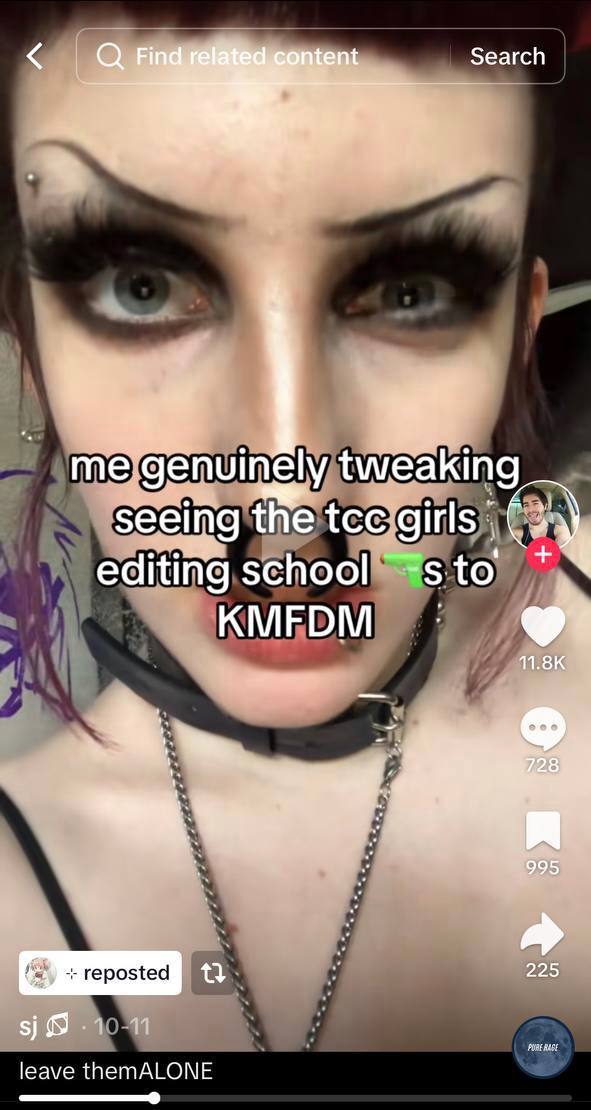
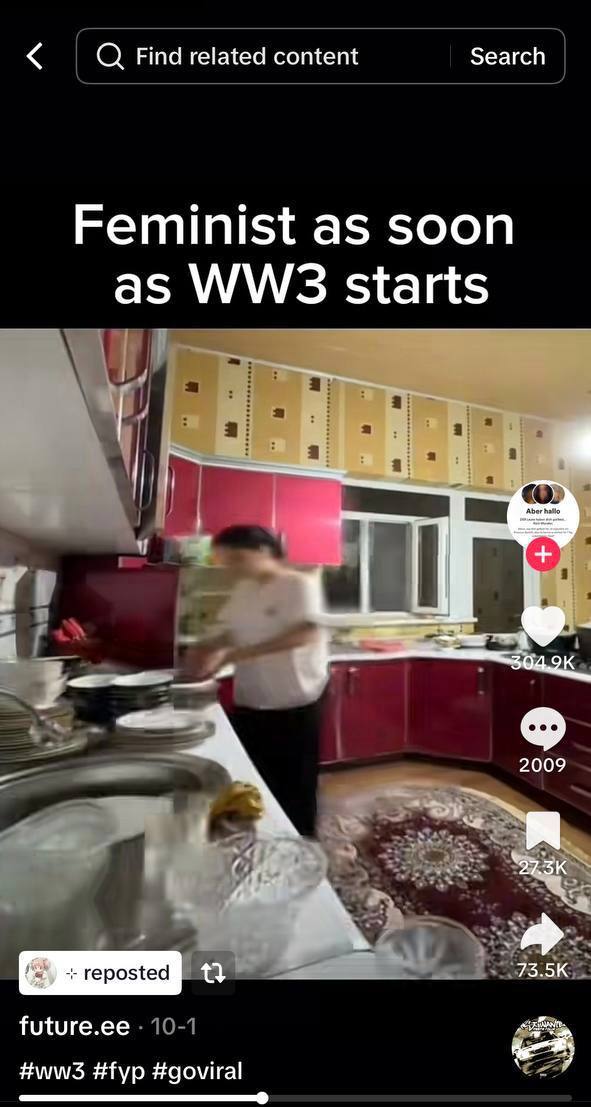
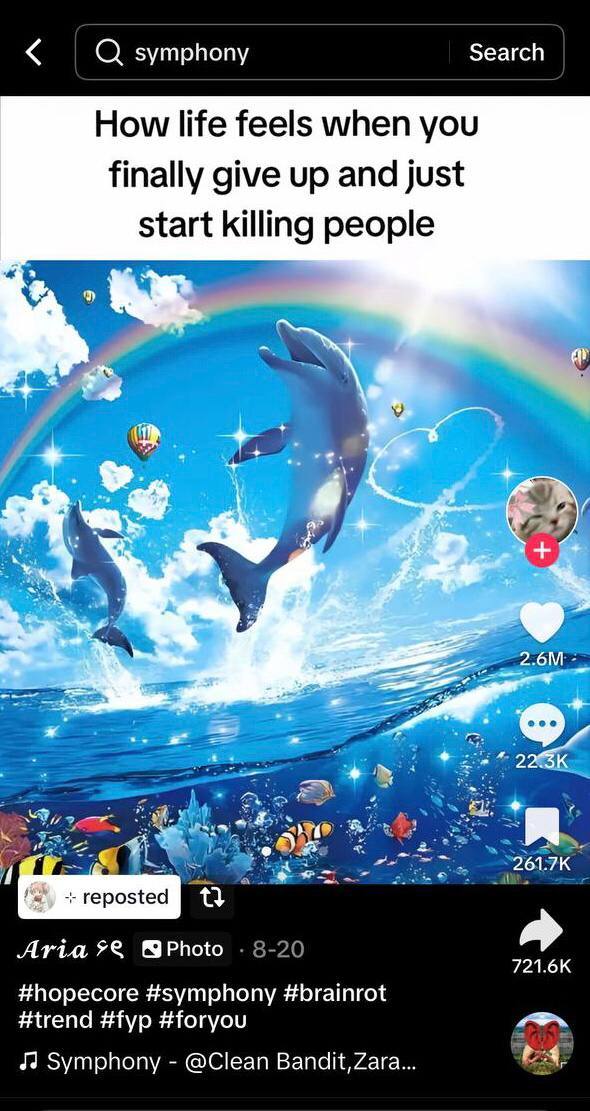
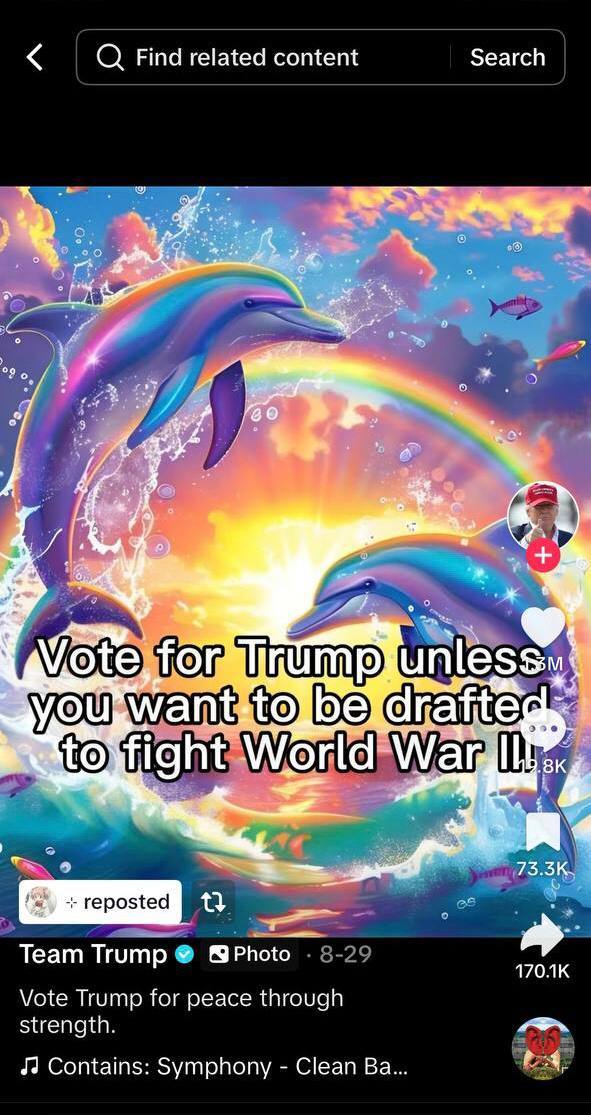
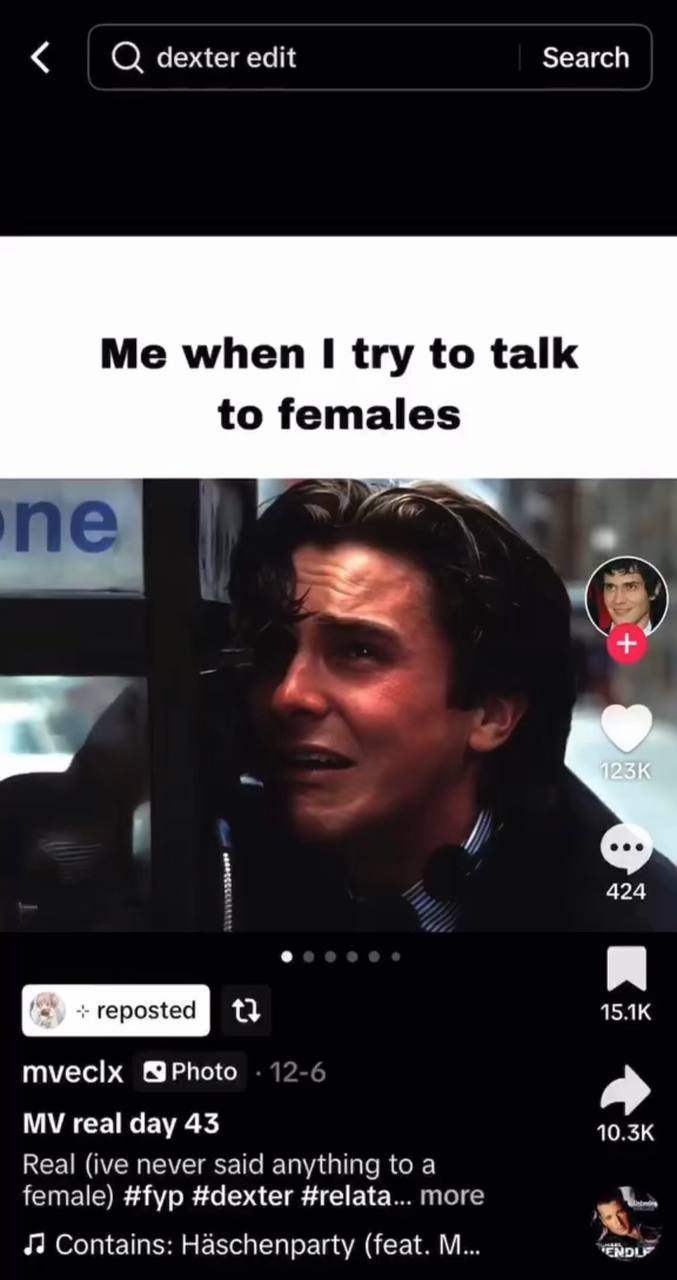
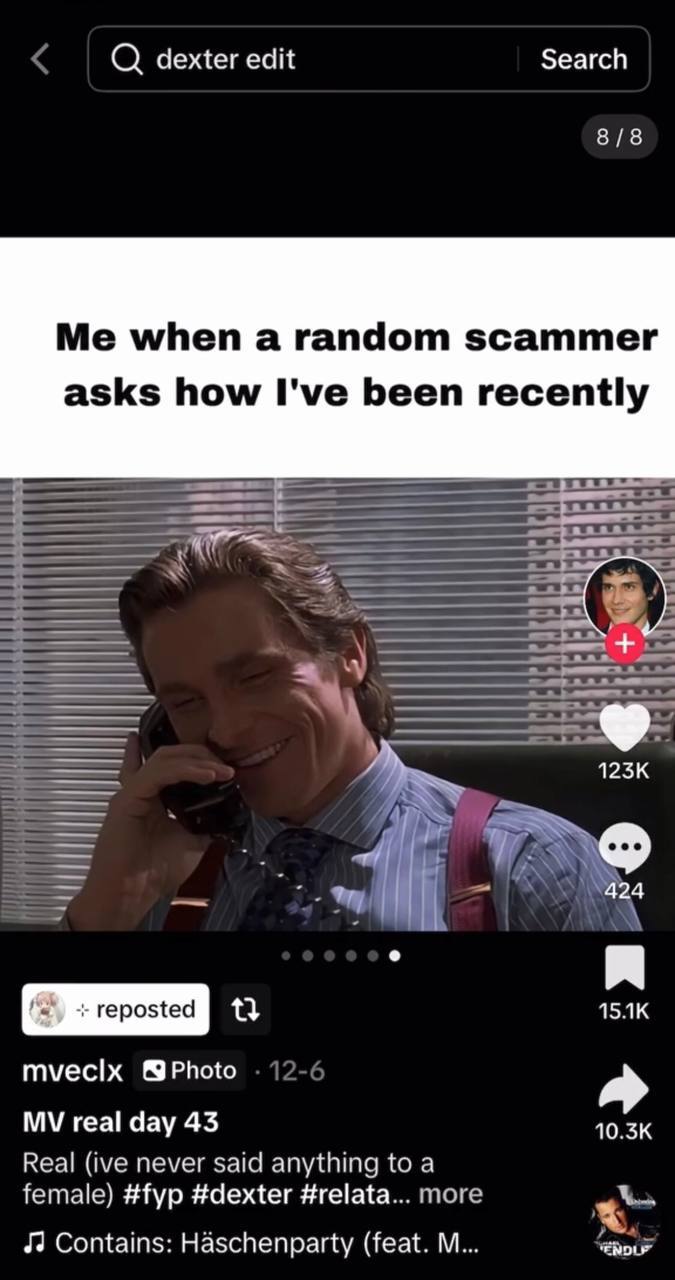
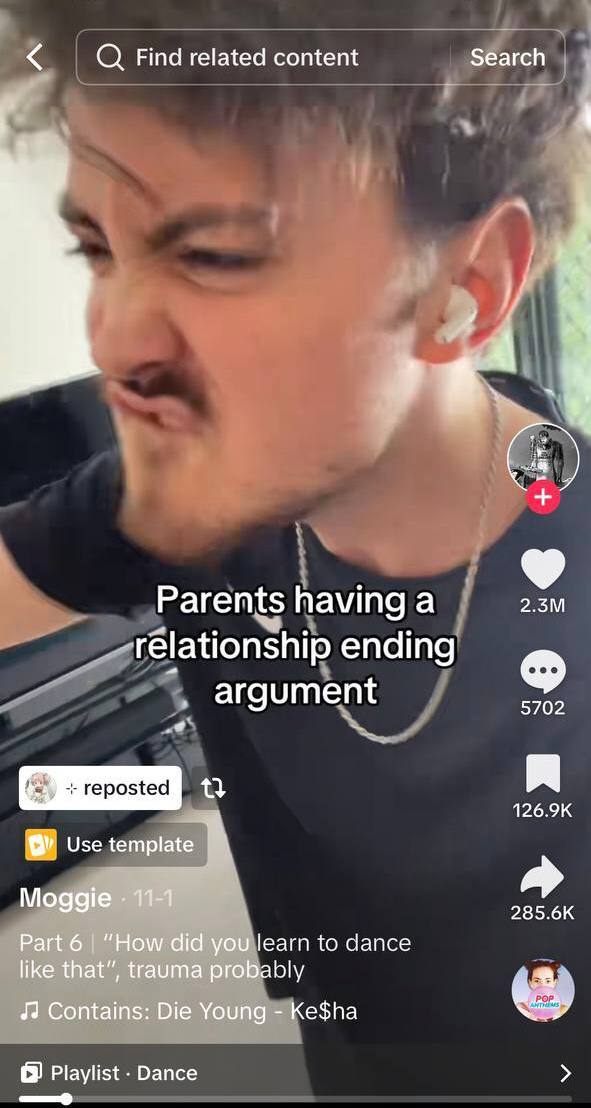
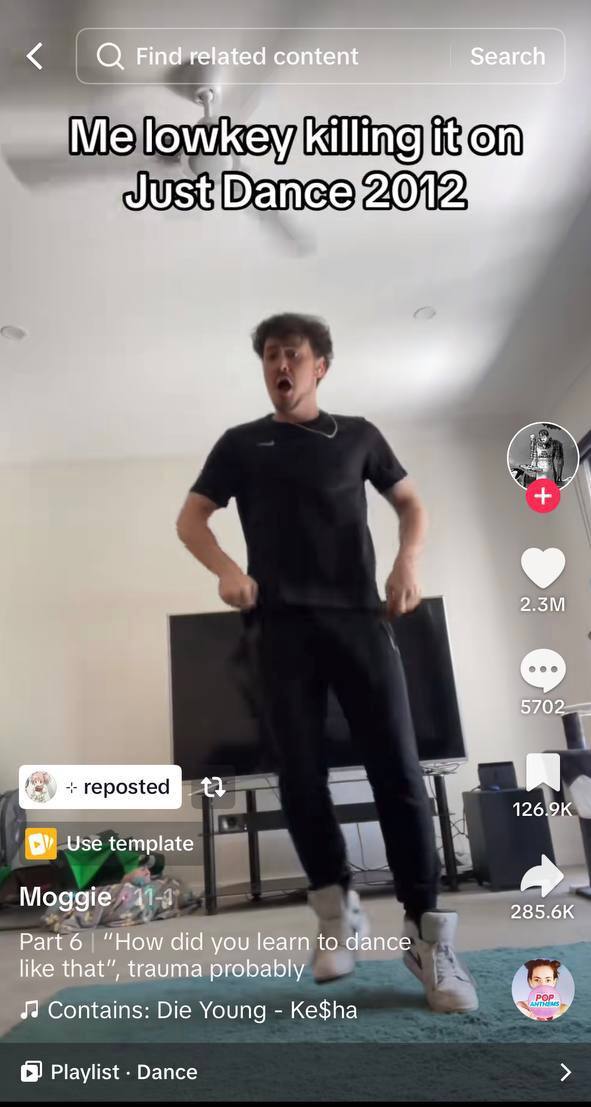
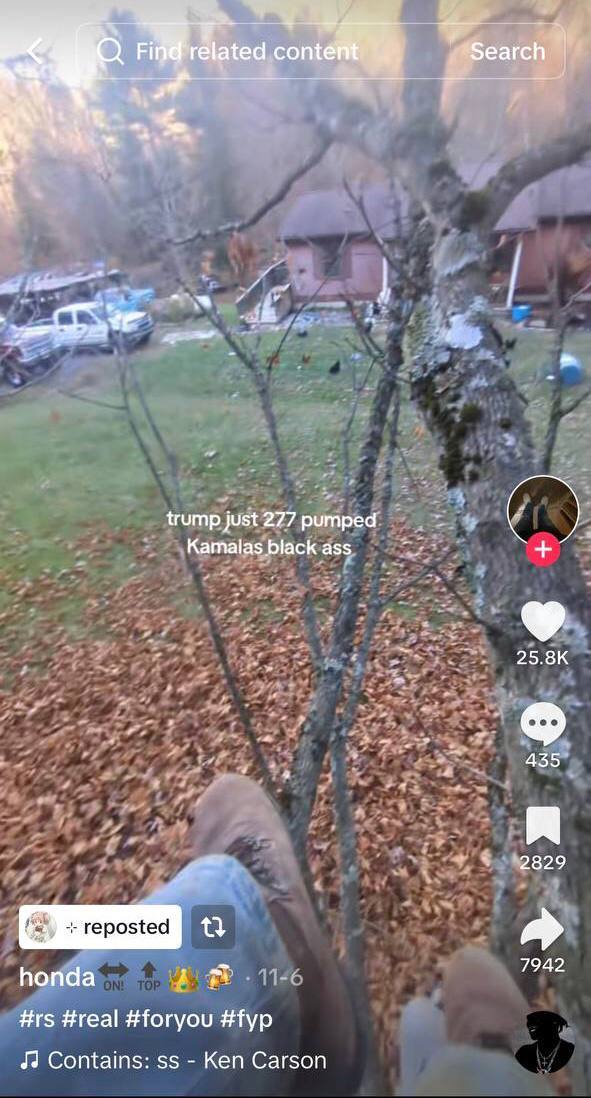
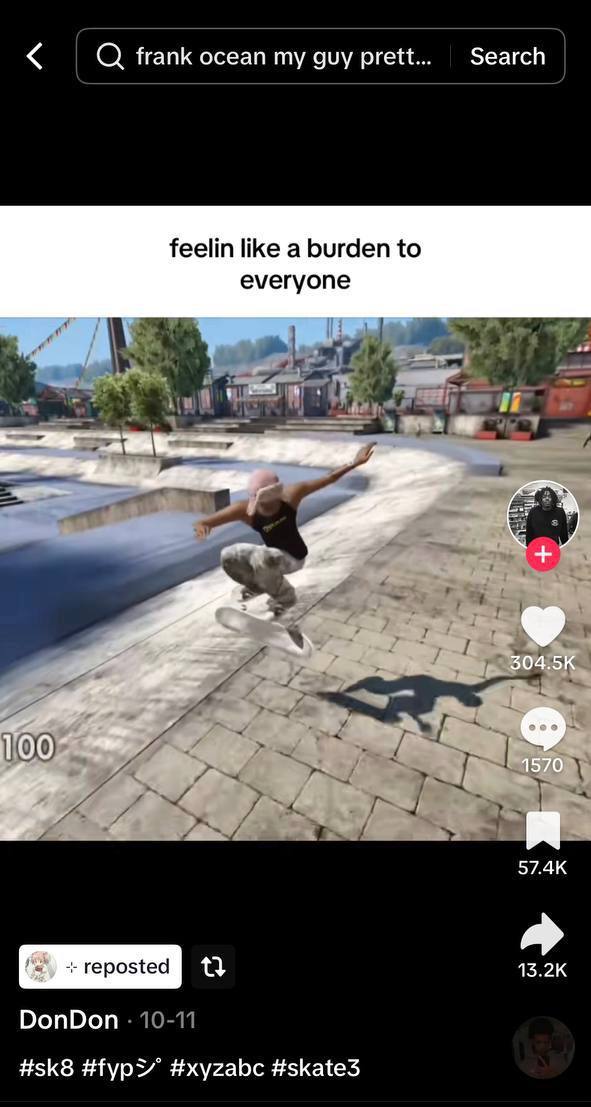
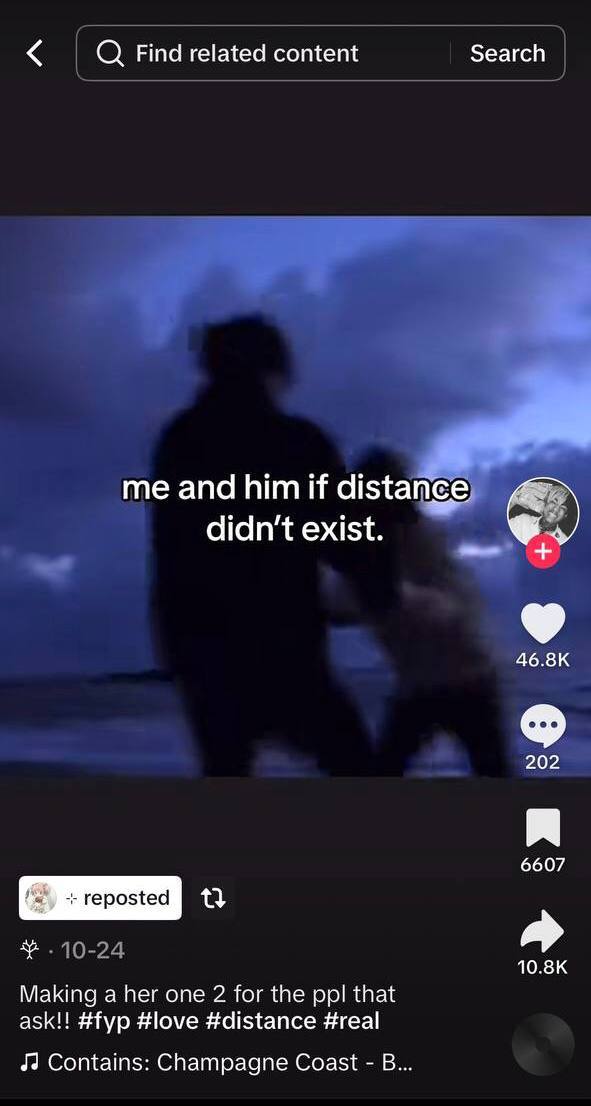
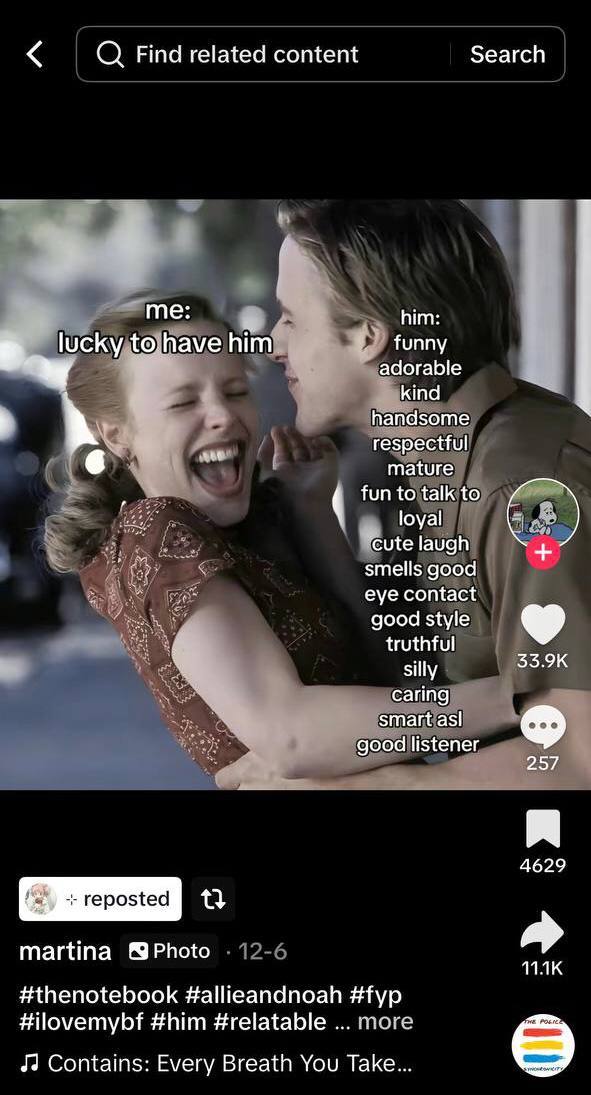
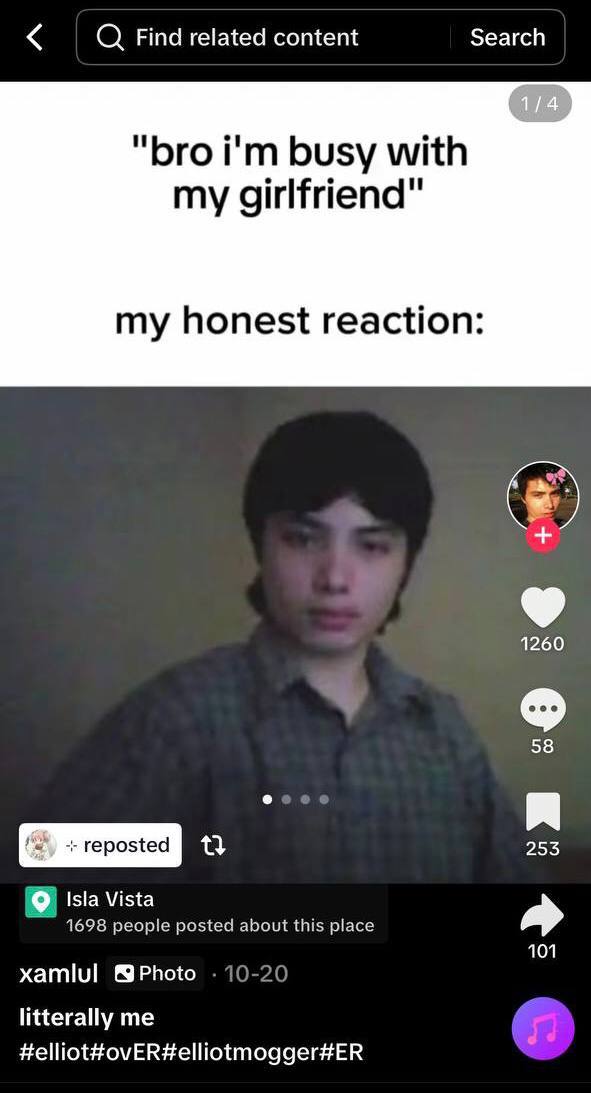
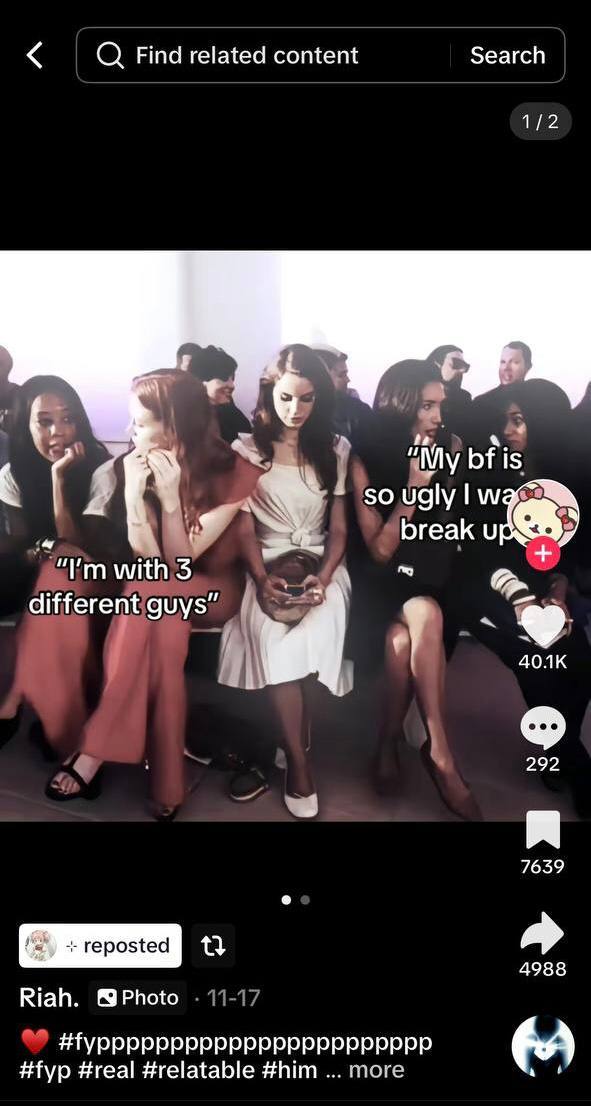
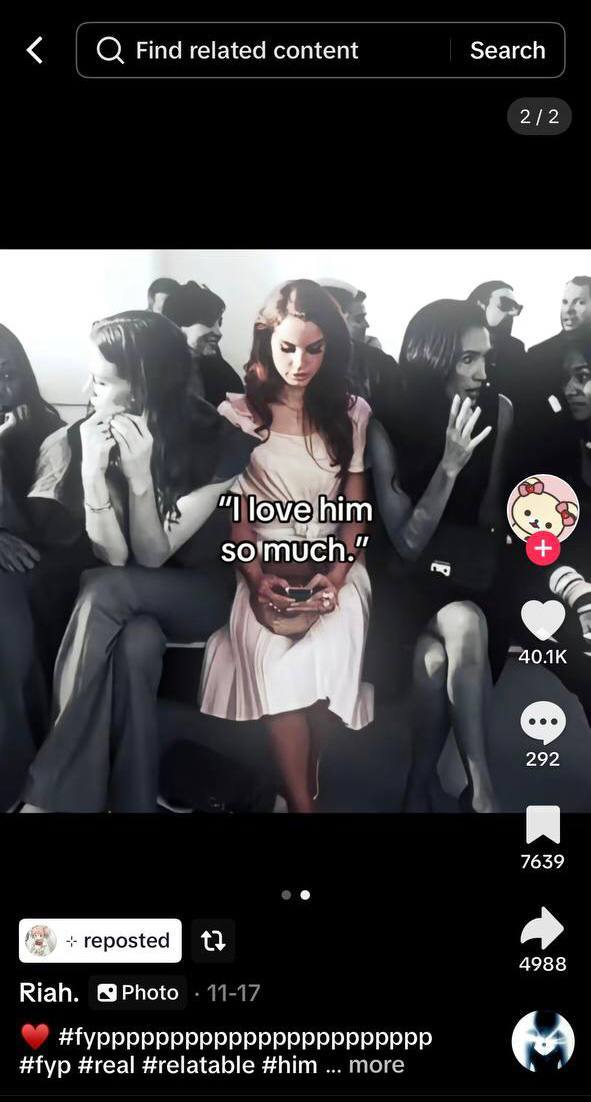
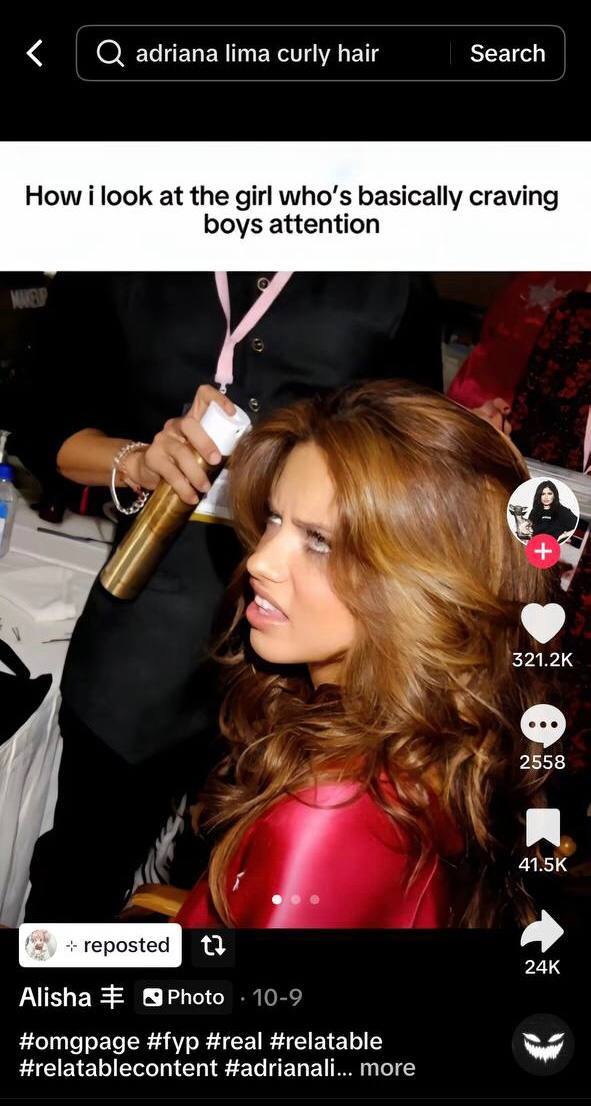
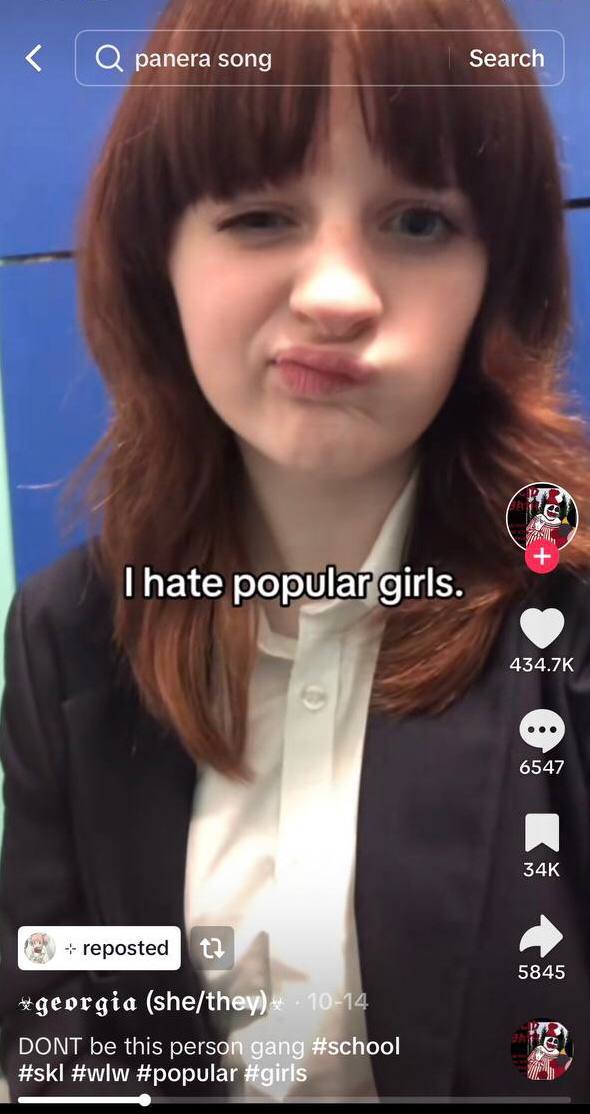
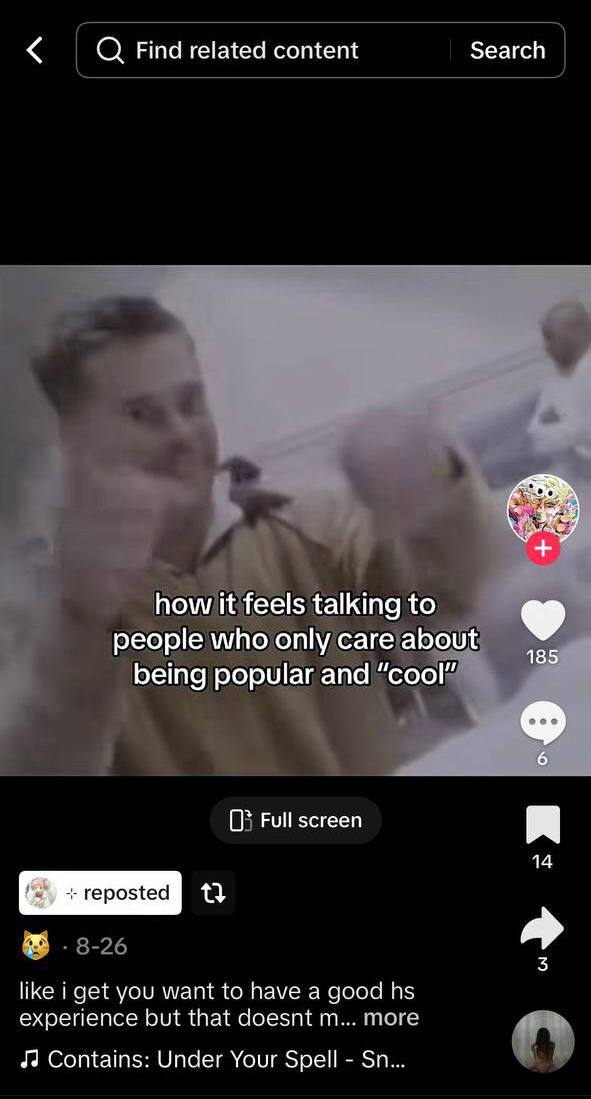
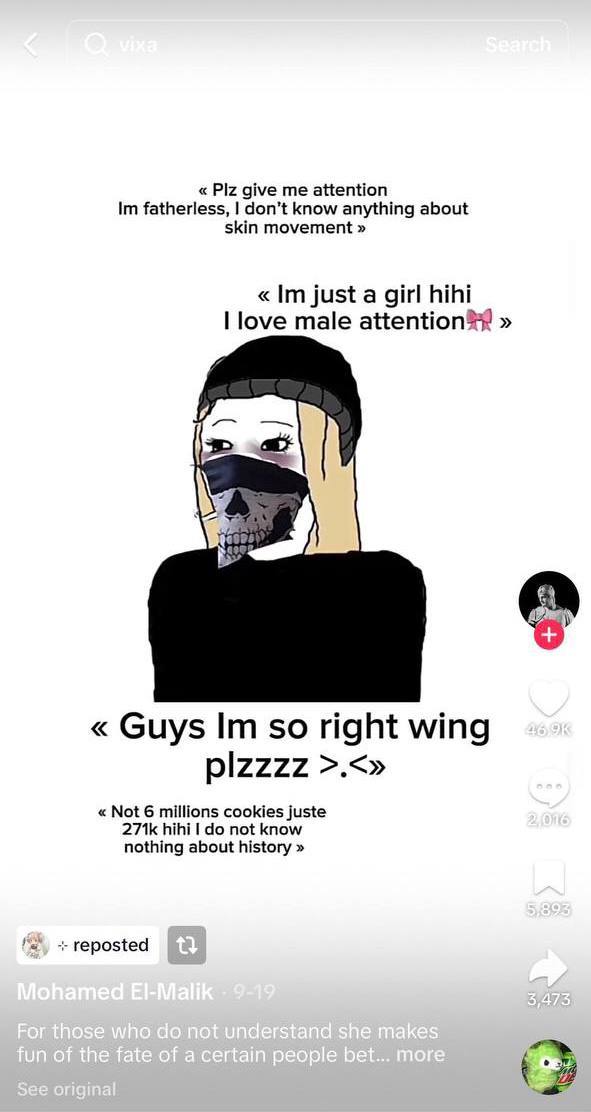
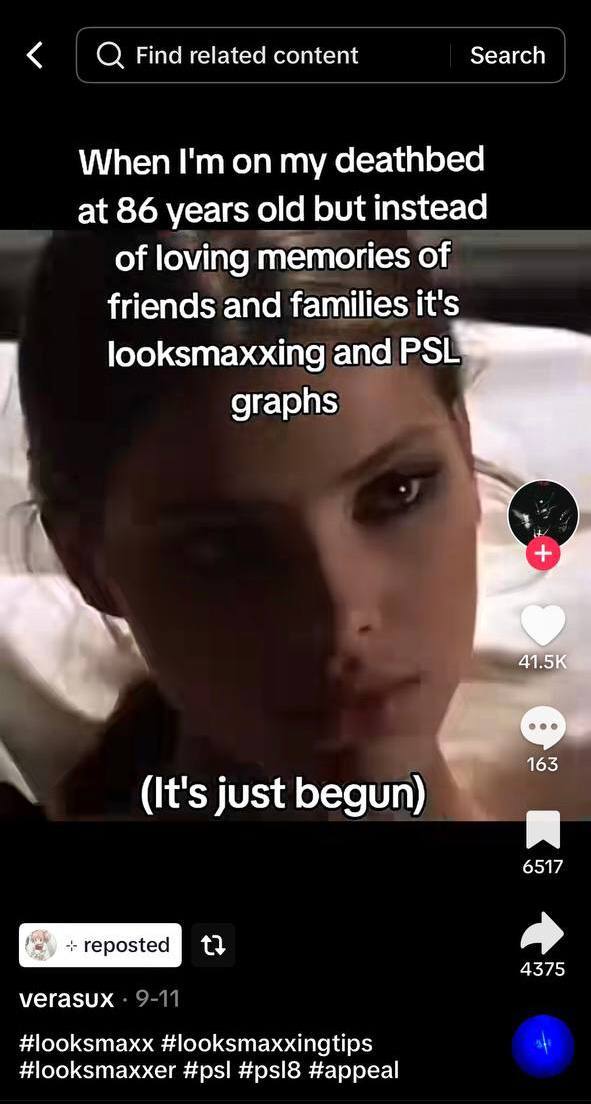
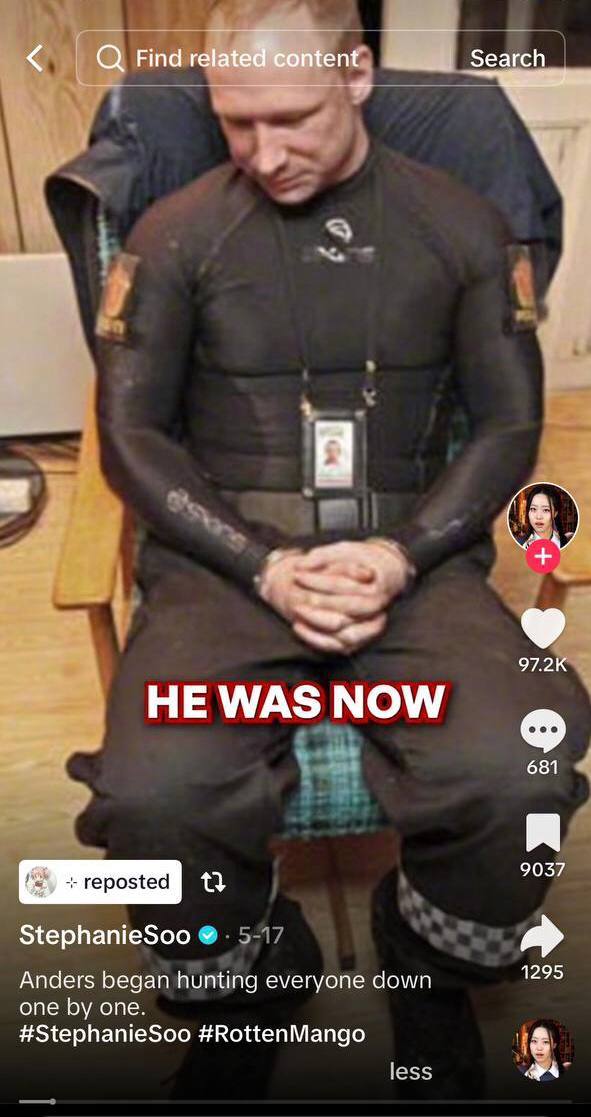


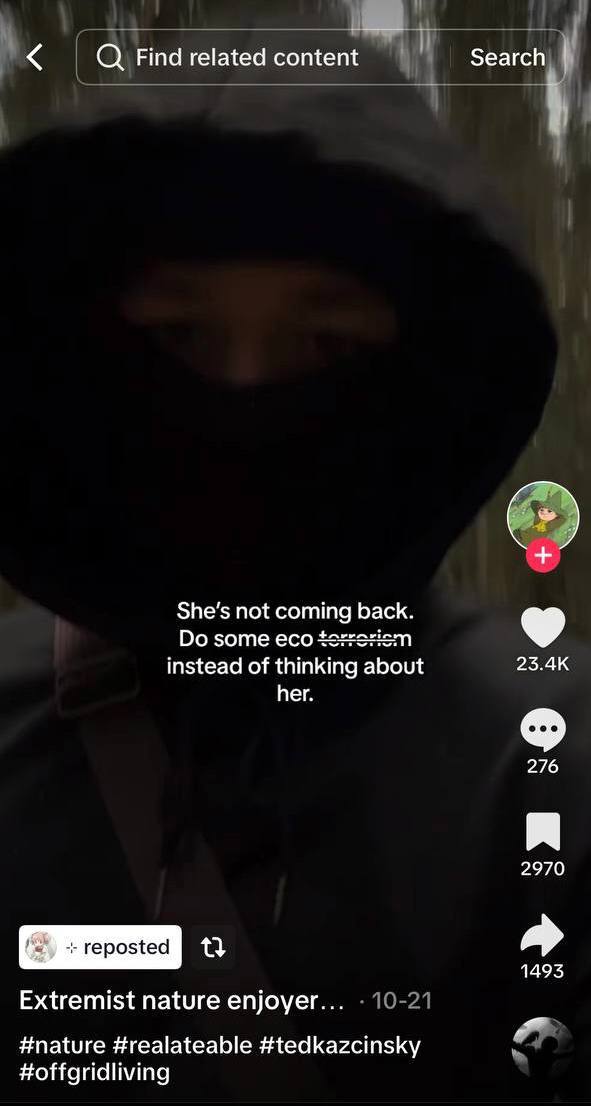
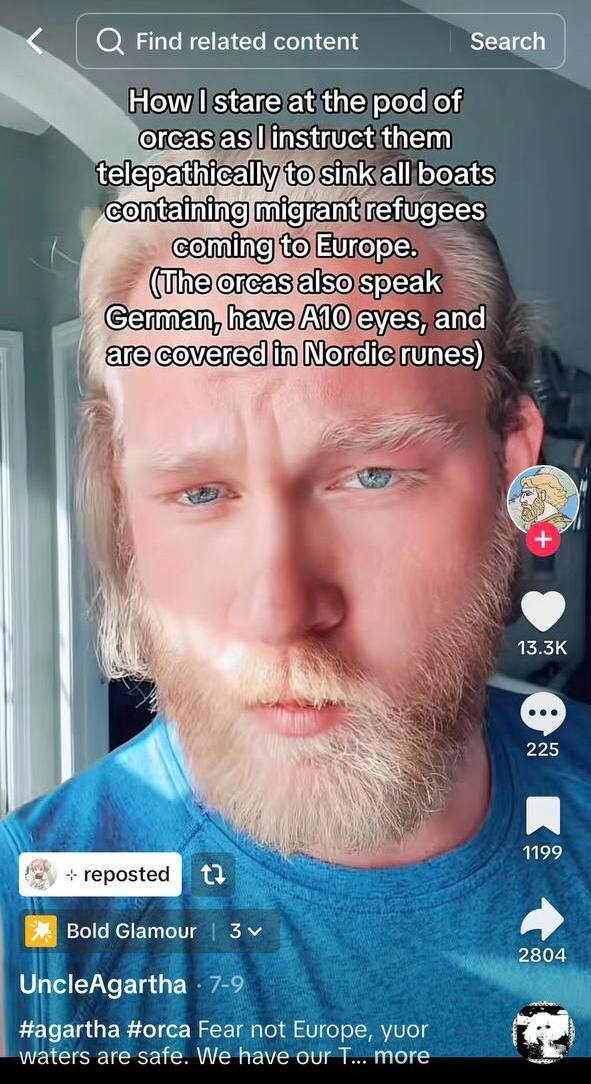
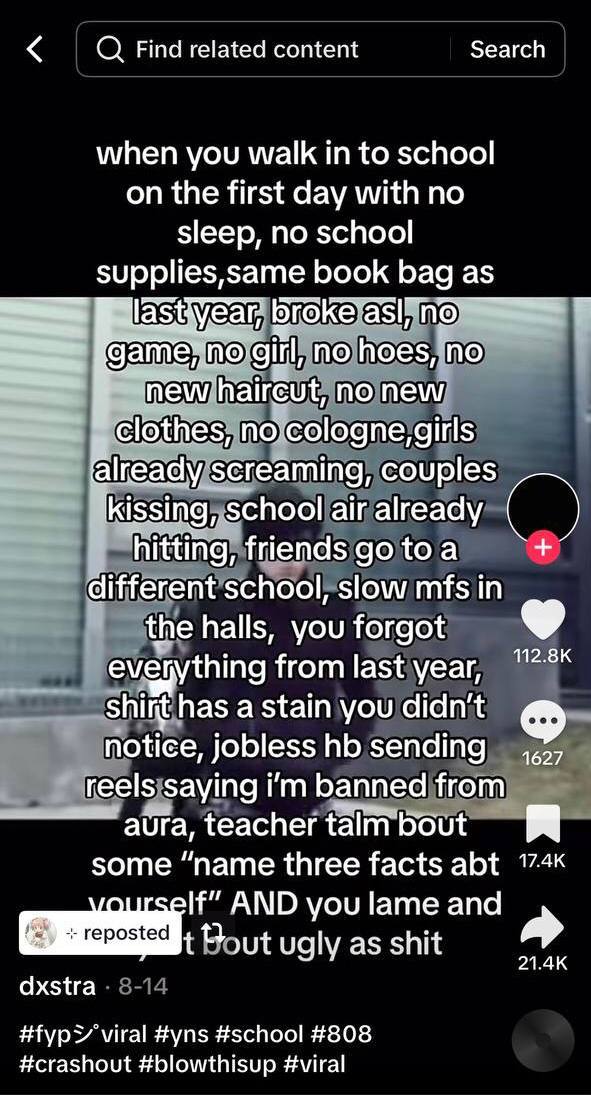
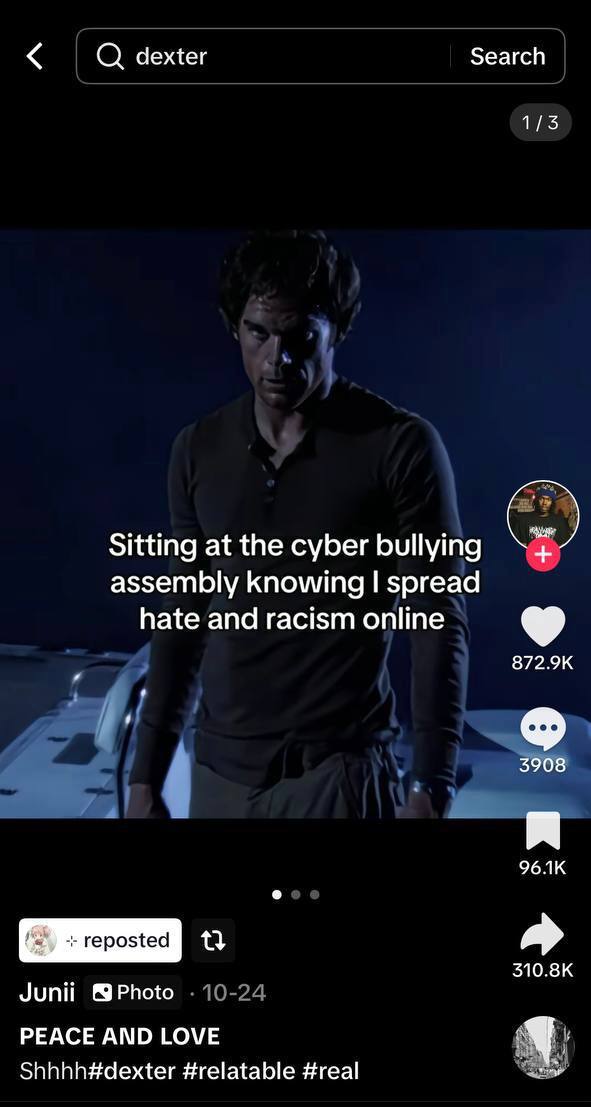

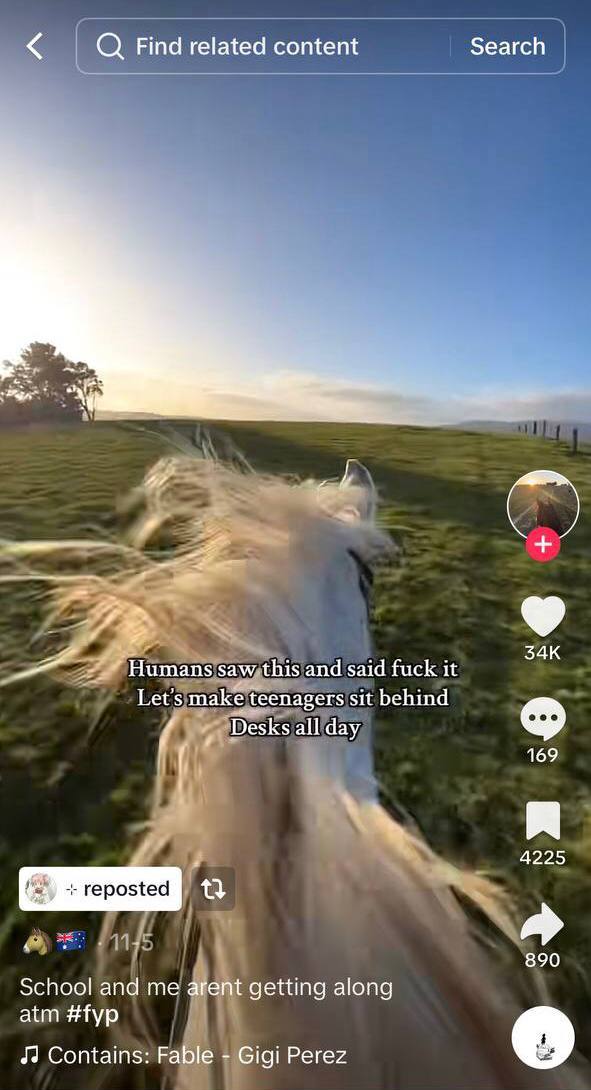
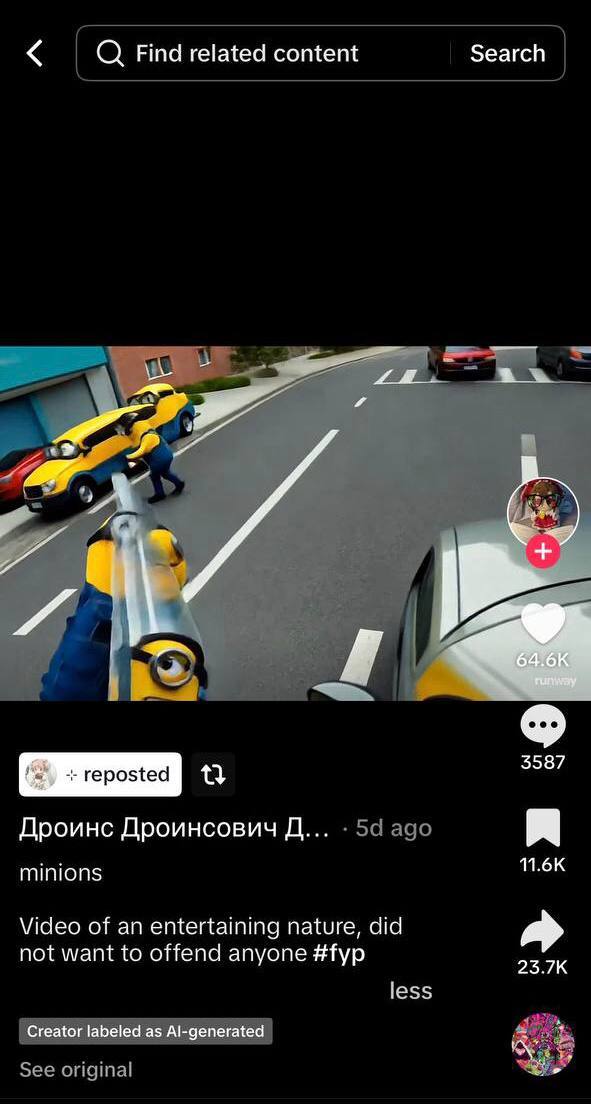
#natalie rupnow#natalie lynn rupnow#samantha rupnow#sam rupnow#crossixir#targetedbloodsport#tccblr#tcc tumblr#tcc fandom#teeceecee#tc community#true cringe community#school shooters
100 notes
·
View notes
Text
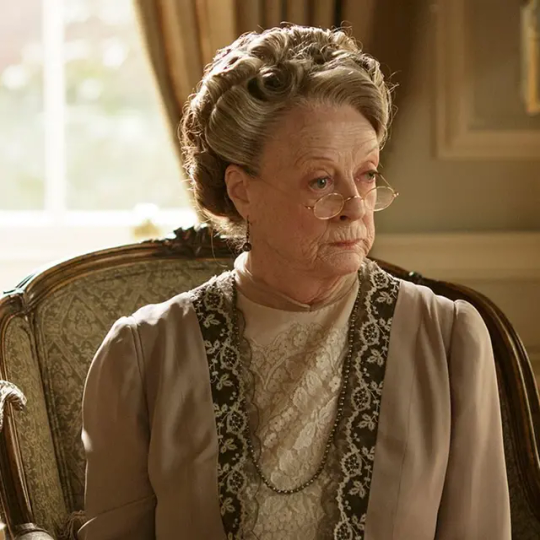
Dame Maggie Smith
A distinguished, double Oscar-winning actor whose roles ranged from Shakespeare to Harry Potter
Not many actors have made their names in revue, given definitive performances in Shakespeare and Ibsen, won two Oscars and countless theatre awards, and remained a certified box-office star for more than 60 years. But then few have been as exceptionally talented as Maggie Smith, who has died aged 89.
She was a performer whose range encompassed the high style of Restoration comedy and the sadder, suburban creations of Alan Bennett. Whatever she played, she did so with an amusing, often corrosive, edge of humour. Her comedy was fuelled by anxiety, and her instinct for the correct gesture was infallible.
The first of her Oscars came for an iconic performance in The Prime of Miss Jean Brodie (1969). Miss Brodie’s pupils are the “crème de la crème”, and her dictatorial aphorisms – “Give me a girl at an impressionable age, and she is mine for life” – disguise her intent of inculcating enthusiasm in her charges for the men she most admires, Mussolini and Franco.
But Smith’s pre-eminence became truly global with two projects towards the end of her career. She was Professor Minerva McGonagall in the eight films of the Harry Potter franchise (she referred to the role as Miss Brodie in a wizard’s hat) between 2001 and 2011. Between 2010 and 2015, in the six series of Downton Abbey on ITV television (sold to 250 territories around the world), she played the formidable and acid-tongued Dowager Countess of Grantham, Lady Violet, a woman whose heart of seeming stone was mitigated by a moral humanity and an old-fashioned, if sometimes overzealous, sense of social propriety.
Early on, one critic described Smith as having witty elbows. Another, the US director and writer Harold Clurman, said that she “thinks funny”. When Robin Phillips directed her as Rosalind in As You Like It in 1977 in Stratford, Ontario, he said that “she can respond to something that perhaps only squirrels would sense in the air. And I think that comedy, travelling around in the atmosphere, finds her.” Like Edith Evans, her great predecessor as a stylist, Smith came late to Rosalind. Bernard Levin was convinced that it was a definitive performance, and was deeply affected by the last speech: “She spoke the epilogue like a chime of golden bells. But what she looked like as she did so, I cannot tell you; for I saw it through eyes curtained with tears of joy.”
She was more taut and tuned than any other actor of her day, and this reliance on her instinct to create a performance made her reluctant to talk about acting, although she had a forensic attitude to preparation. With no time for the celebrity game, she rarely went on television chat shows – her appearance on Graham Norton’s BBC TV show in 2015 was her first such in 42 years – or gave newspaper interviews.
Her life she summed up thus: “One went to school, one wanted to act, one started to act and one’s still acting.” That was it. She first went “public”, according to her father, when, attired in pumps and tutu after a ballet lesson, she regaled a small crowd on an Oxford pavement with one of Arthur Askey’s ditties: “I’m a little fairy flower, growing wilder by the hour.”
Unlike her great friend and contemporary Judi Dench, Smith was a transatlantic star early in her career, making her Broadway debut in 1956 and joining Laurence Olivier’s National Theatre as one of the 12 original contract artists in 1963.
In 1969, after repeatedly stealing other people’s movies, with Miss Brodie she became a star in her own right. She was claiming her just place in the elite, for she had already worked with Olivier, Orson Welles and Noël Coward in the theatre, not to mention her great friend and fellow miserabilist Kenneth Williams, in West End revue. She had also created an international stir in two movies, Anthony Asquith’s The VIPs (1963) – she didn’t just steal her big scene with him, Richard Burton complained, “she committed grand larceny” – and Jack Clayton’s The Pumpkin Eater (1964), scripted by Harold Pinter from the novel by Penelope Mortimer.
Before Harry Potter, audiences associated Smith most readily with her lovelorn, heartbreaking parishioner Susan in Bed Among the Lentils, one of six television monologues in Bennett’s Talking Heads (1988). Susan was a character seething with sexual anger; the first line nearly said it all – “Geoffrey’s bad enough, but I’m glad I wasn’t married to Jesus.”
And the funniest moment in Robert Altman’s upstairs/downstairs movie Gosford Park (2001) – in some ways a template for Downton Abbey, and also written by Julian Fellowes — was a mere aside from a doleful Smith as Constance Trentham turning to a neighbour on the sofa, as Jeremy Northam as Ivor Novello took a bow for the song he had just sung. “Don’t encourage him,” she warned, archly, “he’s got a very large repertoire.” Such a moment took us right back to the National in 1964 when, as the vamp Myra Arundel in Coward’s Hay Fever, she created an unprecedented (and un-equalled) gale of laughter on the single ejaculation at the breakfast table: “This haddock is disgusting.”
Born in Ilford, Essex, she was the daughter of Margaret (nee Hutton) and Nathaniel Smith, and educated at Oxford high school for girls (the family moved to Oxford at the start of the second world war because of her father’s work as a laboratory technician). Maggie decided to be an actor, joined the Oxford Playhouse school under the tutelage of Frank Shelley in 1951 and took roles in professional and student productions.
She acted as Margaret Smith until 1956, when Equity, the actors’ union, informed her that the name was double-booked. She played Viola with the Oxford University dramatic society in 1952 – John Wood was her undergraduate Malvolio – and appeared in revues directed by Ned Sherrin. “At that time in Oxford,” said Sherrin, “if you wanted a show to be a success, you had to try and get Margaret Smith in it.”
The Sunday Times critic of the day, Harold Hobson, spotted her in a play by Michael Meyer and she was soon working with the directors Peter Hall and Peter Wood. “I didn’t think she would develop the range that she subsequently has,” said Hall, “but I did think she had star quality.”
One of her many admirers at Oxford, the writer Beverley Cross, initiated a long-term campaign to marry Smith that was only fulfilled after the end of her tempestuous 10-year relationship with the actor Robert Stephens, with whom she fell in love at the National and whom she married in 1967. This was a golden decade, as Smith played a beautiful Desdemona to Olivier’s Othello; a clever and impetuous Hilde Wangel to first Michael Redgrave, then Olivier, in Ibsen’s The Master Builder; and an irrepressibly witty and playful Beatrice opposite Stephens as Benedick in Franco Zeffirelli’s Sicilian Much Ado About Nothing, spangled in coloured lights.
Her National “service” was book-ended by two particularly wonderful performances in Restoration comedies by George Farquhar, The Recruiting Officer (1963) and The Beaux’ Stratagem (1970), both directed by William Gaskill, whom she called “simply the best teacher”. In the first, in the travesty role of Sylvia, her bubbling, playful sexuality shone through a disguise of black cork moustache and thigh-high boots on a clear stage that acquired, said Bamber Gascoigne, an air of sharpened reality, “like life on a winter’s day with frost and sun”.
In the second, her Mrs Sullen, driven frantic by boredom and shrewish by a sodden, elderly husband, was a tight-laced beanpole, graceful, swaying and tender, drawing from Ronald Bryden a splendidly phrased comparison with some Henri Rousseau-style giraffe, peering nervously down her nose with huge, liquid eyes at the smaller creatures around, nibbling off her lines fastidiously in a surprisingly tiny nasal drawl.
With Stephens, she had two sons, Chris and Toby, who both became actors. When the marriage hit the rocks in 1975, after the couple had torn strips off each other to mixed reviews in John Gielgud’s 1973 revival of Coward’s Private Lives, Smith absconded to Canada with Cross – whom she quickly married – and relaunched her career there, far from the London hurly-burly, but with access to Hollywood.
She played not just Rosalind in Stratford, Ontario, but also Lady Macbeth and Cleopatra to critical acclaim, as well as Judith Bliss in Coward’s Hay Fever and Millamant in William Congreve’s The Way of the World (this latter role she repeated triumphantly in Chichester and London in 1984, again directed by Gaskill). But her films at this time especially reinforced her status as a comedian of flair and authority, none more than Neil Simon’s California Suite (1978), in which Smith was happily partnered by Michael Caine, and won her second Oscar in the role of Diana Barrie, an actor on her way to the Oscars (where she loses).
Smith’s comic genius was increasingly refracted through tales of sadness, retreat and isolation, notably in what is very possibly her greatest screen performance, in Clayton’s The Lonely Passion of Judith Hearne (1987), based on Brian Moore’s first novel, which charts the disintegration of an alcoholic Catholic spinster at guilty odds with her own sensuality.
This tragic dimension to her comedy, was seen on stage, too, in Edna O’Brien’s Virginia (1980), a haunting portrait of Virginia Woolf; and in Bennett’s The Lady in the Van (1999), in which she was the eccentric tramp Miss Shepherd. Miss Shepherd was a former nun who had driven ambulances during blackouts in the second world war and ended up as a tolerated squatter in the playwright’s front garden. Smith brought something both demonic and celestial to this critical, ungrateful, dun-caked crone and it was impossible to imagine any other actor in the role, which she reprised, developed and explored further in Nicholas Hytner’s delightful 2015 movie based on the play.
She scored two big successes in Edward Albee’s work on the London stage in the 1990s, first in Three Tall Women (1994, the playwright’s return to form), and then in one of his best plays, A Delicate Balance (1997), in which she played alongside Eileen Atkins who, like Dench, could give Smith as good as she got.
The Dench partnership lay fallow after their early years at the Old Vic together, but these two great stars made up for lost time. They appeared together not only on stage, in David Hare’s The Breath of Life (2002), playing the wife and mistress of the same dead man, but also on film, in the Merchant-Ivory A Room With a View (1985), Zeffirelli’s Tea With Mussolini (1999) and as a pair of grey-haired sisters in Charles Dance’s debut film as a director, Ladies in Lavender (2004). Smith referred to this latter film as “The Lavender Bags”. She had a name for everyone. Vanessa Redgrave she dubbed “the Red Snapper”, while Michael Palin, with whom she made two films, was simply “the Saint”.
With Palin, she appeared in Bennett’s A Private Function (1984), directed by Malcolm Mowbray – “Moaner Mowbray” he became – in which an unlicensed pig is slaughtered in a Yorkshire village for the royal wedding celebrations of 1947. Smith was Joyce Chilvers, married to Palin, who carries on snobbishly like a Lady Macbeth of Ilkley, deciding to throw caution to the winds and have a sweet sherry, or informing her husband matter-of-factly that sexual intercourse is in order.
She had also acted with Palin in The Missionary (1982), directed by Richard Loncraine, who was responsible for the film of Ian McKellen’s Richard III (1995, in which she played a memorably rebarbative Duchess of York) and My House in Umbria (2003), a much-underrated film, adapted by Hugh Whitemore from a William Trevor novella. This last brought out the very best in her special line in glamorous whimsy and iron-clad star status under pressure. She played Emily Delahunty, a romantic novelist opening her glorious house in Umbria to her three fellow survivors in a bomb blast on a train to Milan. One of these was played by Ronnie Barker, who had been at architectural college with Smith’s two brothers and had left them to join her at the Oxford Playhouse. Delahunty finds her new metier as an adoptive parent to a little orphaned American girl.
She was Mother Superior in the very popular Sister Act (1992) and its sequel, and her recent films included a “funny turn” as a disruptive housekeeper in Keeping Mum (2005), a vintage portrait of old age revisited by the past in Stephen Poliakoff’s Capturing Mary (on television in 2007) and as a solicitous grandmother of a boy uncovering a ghost story in Fellowes’s From Time to Time (2009).
As this latter film was released she confirmed that she had been diagnosed with breast cancer and had undergone an intensive course of chemotherapy, but had been given the all-clear – only to be struck down by a painful attack of shingles, a typical Maggie Smith example of good news never coming unadulterated with a bit of bad.
Her stage appearance as the title character in Albee’s The Lady from Dubuque at the Theatre Royal, Haymarket, in 2007 was, ironically, about death from cancer. She returned to the stage for the last time in 2019, as Brunhilde Pomsel in Christopher Hampton’s one-woman play A German Life, at the Bridge theatre, London.
Cross, who was a real rock, and helped protect her from the outside world, died in 1998. But Smith picked herself up, and went on to perform as sensationally and beguilingly as she had done all her life, including memorable appearances in the Best Exotic Marigold Hotel films (2011 and 2015) and two Downton Abbey movie spin-offs (2019 and 2022). Her final film role was in The Miracle Club (2023), co-starring Kathy Bates and Laura Linney.
She had been made CBE in 1970 and a dame in 1990, and in 2014 she was made a Companion of Honour. Her pleasure would have been laced with mild incredulity. A world without Smith recoiling from it in mock horror, and real distaste, will never seem the same again.
She is survived by Chris and Toby, and by five grandchildren.
🔔 Maggie Smith (Margaret Natalie Smith), actor, born 28 December 1934; died 27 September 2024
Daily inspiration. Discover more photos at Just for Books…?
45 notes
·
View notes
Text
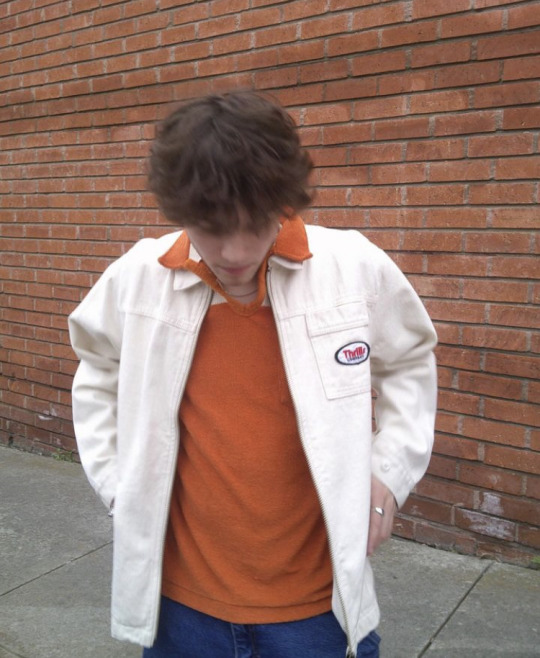
Matt & Me🎀
1 2 3 4 5 6 7 8 9 10 11 12 13 14 15 16 17 18 19 20 21 22 23 24
a story heavily based on Priscilla Presley’s Book “Elvis & Me” based in the 1950’s - 1970’s.
fem! reader x singer! matt
disclaimer!! - in no way am i saying matt would ever support or do these kind of things, for the sake of the book certain unethical things do happen at times.
warnings - drinking,, sexual references
y/nn = your nickname if your confused🩷
Chapter 8
After Christmas we did something exciting every night, usually beginning after midnight. Sometimes Matt rented either the Memphian or the Malco theater to watch movies. Other times he rented the entire Rainbow Skating Rink, the infamous roller rink I’d heard so much about.
My first night there I was lacing up my skates when the boys asked me, “Do you know how to skate?”
“Sure,” I said.
“But do you know how to skate?” they persisted.
I got the message real fast when a box of knee pads was passed around. This was not your ordinary around the rink to organ music skating. The idea here was to keep your bones intact.
I wobbled onto the rink only to wobble off. I wasn’t about to stay on that floor after seeing the determined looks on the other skaters’ faces. They made the Roller Derby look mild. From the sideline, I watched them rounding the rink, adjusting their jackets and shirts so they weren’t too tight and checking that their arms and legs were securely padded.
Then Matt skated into their midst, calling out, “Okay, everybody. Y’all clear the way on the sidelines. I don’t want anybody hurt over there. Honey, why don’t you get on the other side there with Louise [Gene Smith’s wife]. The rest of you, get your asses somewhere else.” They all started laughing, and he said, “Okay, let’s go!”
About twenty-five skaters locked hands, forming what they called a whip. Skating abreast, they began circling the rink, building up speed. The objective of the game was to remain unscathed at speeds of over ten miles per hour. It could be very dangerous if you were to lose your balance or if you were at the tail end, when, by turning quickly, they all “cracked the whip.”
There were a lot of falls, but despite the danger, Matt seemed to know exactly what he was doing. I noticed that whenever someone was hurt, he was the first to see if they were all right and to decide if they should continue to play.
I still don’t know how anybody kept from getting seriously injured, yet no one complained and most of them were even willing to do it again the next night. It was rough, but as Matt put it, “If you’re man enough to get out there, then you better be man enough to take the licks.”
New Year’s Eve was approaching. Matt told Alan to rent the Manhattan Club for the evening and to invite about two hundred people, Matt’s friends and the presidents and other members of his fan clubs.
Although I was excited about the party, I couldn’t help thinking that after New Year’s Eve I would have to leave. Matt kept telling me not to think about it. I noticed that whenever I mentioned a problem to him he’d just say, “It’ll all work out, don’t worry about it. I’ve got enough to think about without having to worry about that.”
He always avoided problems. If I was disturbed or depressed, or if I felt we were becoming distant and wanted to get closer by talking it out, he avoided me or told me my timing was bad. There was never a good time.
Once I reproached him about the attention he was lavishing on the girlfriend of one of the regulars. She was very attractive, about my height, with black hair and a nice figure. She had come into the kitchen, where several of us were sitting, and Matt, who was wearing dark sunglasses, began making comments like, “Boy, it’s getting warm in here. Anybody else warm?”
I was so upset I left the room. I waited for him to go upstairs, then followed shortly behind him. “Matt, I have to talk to you,” I said.
“Sure, Honey, what is it?”
“I saw the way you were eyeing that girl. It upset me.”
“Look, woman,” he said, losing his temper. “No one tells me who I can look at and who I can’t. Besides, your imagination’s getting carried away. I’ve seen her ass around here long before today.”
With that I stomped out, slamming the bedroom door. I felt betrayed that he’d even desire another woman and was annoyed that he’d never admit it. I became obsessed and watched what Matt liked, what attracted him, trying to be everything he ever imagined a woman could be, and more.
The New Year’s Eve party at the Manhattan Club started around 10 p.m., but Matt timed our arrival a few minutes before midnight. We just had time to order double screwdrivers when the countdown began. Then we all sang “Auld Lang Syne.”
As people shouted “Happy New Year!” Matt pulled me close and said, “Baby, I don’t want you to go back. You’re staying here. We’ll call your parents in the morning.”
I was in such a state of ecstasy that I didn’t notice what I was drinking: four double screwdrivers, all drunk through a straw. After one double, I was feeling high; after four, I was reeling. I went into the ladies’ room with Louise and stayed there for what seemed like hours, swaying back and forth in the stall, trying to get myself together.
When we finally returned to the table, I tried to act as if everything was okay, but Matt took one look at me and said, “Baby, we better get you home. You’re in no condition to be here.” He asked his old friend George Klein, the Memphis disc jockey, if he would take me home.
I spent most of the ride back to Graceland with my head out the window. George and his date walked me to the door, where we said good night, and I let myself in.
Gripping the banister, I slowly climbed the white stairs, shedding my clothing as I went: my jacket, purse, shoes, and blouse left in a long trail up the steps. By the time I reached the bedroom I was wearing only my bra and panties. I collapsed on the bed and passed out.
A few hours later I heard Matt tiptoe into the room and come over to me. His condition was not much better than mine. I could make out his silhouette against the ceiling above me. I didn’t stir. Gently, he took off the rest of my clothes. Then he kissed me and kissed me over and over. This night we almost went too far. His vow was nearly broken. My passion had gotten to him and under the influence of alcohol, he weakened. Then, before I knew what happened, he withdrew saying, “No. Not like this.” It had to be special, just as he’d always planned.
I have to admit that, at that moment i didn’t care if it was special and I didn’t care what he’d vowed. I didn’t care, in fact, what he wanted at all. I only knew I wanted him.
The next morning my head throbbed with a terrible hangover. I felt ashamed and embarrassed—and yet not at all sorry about what we’d done. He was a little closer to being all mine.
The moment of truth came when we called my father in Germany. Matt was on the extension in his office and I was on another phone somewhere else in the house. Though the connection to Wiesbaden was filled with static, there was no mistaking my father’s words.
“Young lady, I will not go through this conversation again. We made an agreement. You were to leave there on the second of January. You’ve got one day left and you’d better be on that flight!”
Matt interjected, “Captain, sir, if she could just stay a couple more days. I have to be back in L.A. soon, and it would be nice—”
“Matt, I can’t do that. She has to be back in school and that was the deal. I’m sorry. y/n y/ln, are you there?”
“Yes,” I answered.
“We’ll be at the airport. You know the time; we’ll see you then.”
I was furious. I flew into Matt’s office where, sitting behind his desk, he was just hanging up.
“I hate them. I hate them both,” I yelled like a spoiled child. “Why are they stopping us? They just want me home to babysit, to take care of the kids, that’s all.”
Matt’s face was flushed with anger. “We made a goddamn agreement—who the hell does he think he is, talking like that on the goddamn phone—him and his military upbringing.”
He grabbed the phone and called down to the kitchen, demanding, “Where’s my dad! He down there? Tell him to come upstairs to the office.”
Within seconds James was at the door. “What is it, Son?”
“Goddamn Captain y/ln,” he shouted. “We just called to see if y/nn could stay a few more days and he comes off with this cocky attitude and refuses with his jargon about making agreements.”
“Now calm down, Son. It ain’t that bad. He was probably just concerned about her being home in time for school.”
“School, what the hell do I care about school?” Matt snapped, ignoring James’s efforts to soothe him. “Put her into school here, that’ll solve everything. She doesn’t need school. Hell, they don’t teach you anything nowadays anyway.”
“Well, Son, she’s gonna have to go back, there ain’t no two ways about it, give or take a day or two.”
“Goddamn, Dad, you’re not helpin’ matters any,” Matt said, but he was beginning to calm down. He sat back in his big desk chair and swiveled it around to face the window, then gazed out toward the pastures. Finally he turned around and announced that he had a plan.
Matt’s strategy called for me to return to Germany and to arrive in good spirits, then to concentrate on doing well in school so that my parents wouldn’t be able to use my poor grades as an excuse for not letting me return. Matt wanted me to finish high school in Boston and to that end he would make arrangements for me to return as soon as possible.
Germany
Although Matt said that I should greet my parents with a friendly smile, from the moment I got off the plane, my attitude was one of defiance. I now believed that my parents were a threat to my future happiness. I didn’t realize that their fears and concerns were entirely reasonable. All that mattered to me was what Matt and I wanted, and no one was going to stand in our way.
The weather was cold and dreary, which certainly didn’t help my mood. I walked through customs to find my parents waiting. Noting my attitude, their expressions were cool, their welcome stiff. No loving arms wrapped around me, no loving words greeted me. Only my father’s abrupt order, “Let’s go.”
The drive back to Wiesbaden seemed longer than forty-five minutes. I sat in the backseat in icy silence. No one mentioned my request to stay at Graceland.
“All in all, did you have a nice time?” Dad ventured.
“Yes,” I replied, looking out the window at the clusters of trees bare from the harsh winter.
“Did Matt like your present?” Mother asked hopefully.
“Yes,” I assured her. “He loved it.”
“Was it as cold in Boston as it gets here?” Dad asked, keeping the conversation light, trying to make me open up and talk.
“No, it’s colder here,” I replied sharply, referring to both the weather and my attitude. Our eyes met in the rearview mirror and surprisingly, Dad looked away rather than reacting to my cutting remark.
I knew I was pushing my luck with them, but I couldn’t suppress my feelings and pretend that everything was all right. I was so deeply in love that chitchat seemed pointless—as did everything except for Matt. I remembered how he had held me before we said goodbye, with such emotion and need that nothing could keep me away from him. How could I explain these adult feelings to my parents who, I thought, could never understand and would think me silly or just infatuated?
When we arrived home Dad said, “Well, you’ve got school tomorrow, so try to get as much rest as you can tonight.”
Mom added, “You should have dinner and get right to bed.”
Did they both honestly think that I could slip back into the routine of ordinary life?
I rebelled against going to school. I skipped classes, went to town, and downed a few beers with whoever I could get to join me. My attitude worsened along with my grades.
My parents were as confused as any caring parents would be, hoping the problem would eventually go away. But I didn’t make it easy for them. What had started out as a simple introduction to the world’s greatest rock-and-roll star had turned into a nightmare for them.
Matt began calling me almost immediately, and we’d talk for hours. My parents heard me whispering and giggling till three in the morning and wondered what on earth we could be talking about for so long. Nothing really—yet it seemed like everything.
I began to reveal to my mother that Matt and I loved each other and longed to be together. Finally one day I summoned the courage to tell her that Matt wanted me to finish school in Boston. Her response: an unqualified no. She felt it could wait until my father’s tour of duty was over. That would be the end of summer, she said, and there was no need for me to return to Matt sooner.
“But Mother,” I pleaded, “you don’t understand. He wants me there with him.”
“Why you?” she asked, her voice thick with emotion. “Why can’t he find someone his own age? You’re only sixteen. What is this man doing to our family?”
She buried her face in her hands and began crying.
I did feel sorry for her. We were always close, she was always there for me, but this time she just didn’t understand. I hated seeing her in pain, but nothing seemed more important to me than Matt. Not even my mother.
“He’s not anything like you imagine,” I said, “and he needs me, Mother. I won’t get hurt. Please talk to Dad.”
Slowly she raised her head and looked at me.
“y/nn, I’d never forgive myself if I let you go and if you came back to us with a broken heart. You’re so young! You have no idea what lies ahead of you. All you know is you’re in love. Do you know how difficult that is to fight?” She sighed. “I wouldn’t wish this on any parent.”
She brushed away her tears and after a moment said, “All right, I’ll talk to your father, but not just yet. It’s still too soon.”
I gave her a big hug and whispered, “Thank you, Mother. I know you can do it. I love you.”
Now I had to wait for my mother to intercede. I knew how much my father was against the idea. My parents still didn’t really know Matt’s intentions toward me. They only knew what I had told them. But they had also read in the newspapers that Matt was dating every one of the female costars in his movies, so naturally they were suspicious.
One day on the phone I told Matt, “If you want me to come back and go to school, you’re going to have to talk to my father yourself.”
“Put him on,” Matt replied. “I’m not MacArthur, but I can sure as hell try.”
Drawing on all of his charm, Matt assured my father that if I was permitted to move to Boston, I wouldn’t live with him at Graceland but with his dad, James, and his wife, Angela. Matt promised to enroll me in a good Catholic school—he’d choose it himself—and make sure I graduated. He said I’d always be chaperoned and that he’d care for me in every way. Declaring his intentions honorable, he swore that he loved and needed and respected me. In fact, he couldn’t live without me, he said, intimating that one day we’d marry.
This left my parents in a dilemma. If Matt were as sincere as he sounded, there was a chance that our relationship might work out. But if it didn’t work out, they ran the risk of my returning to them disillusioned and brokenhearted. If they refused to let me go, I might never forgive them and I would bitterly regret this unfulfilled love for the rest of my life. In that light, there was little they could do but say yes, and eventually they did.
In truth, I was as mystified as my parents were about why Matt wanted me to come live with him. I think he was attracted by the fact that I had a normal, stable childhood, and that I was very responsible, having helped my parents raise my younger brothers and sister. I was more mature at sixteen than I was at fourteen, when he’d met me, not only because I’d gone through the normal growing period, but also because I’d experienced the pain of living without him for those two years.
Most of all, he knew he could depend on me. I wasn’t interested in a career, in Hollywood, or in anything else that would draw my attention away from him. I also had all of the physical attributes that Matt liked, the fundamentals he could use in turning me into his ideal woman. In short, I had everything that Matt had been looking for in a woman: youth and innocence, total devotion, and no problems of my own. And I was hard to get.
I intended to do whatever I had to to hold him, because if he had ever sent me home, it would have meant not only that I’d been wrong in going to him, but that my parents had been wrong for having permitted it. I firmly resolved to make our relationship work, no matter what.
Excerpt from: "Elvis and Me" by Priscilla Beaulieu Presley. Scribd.
This material may be protected by copyright.
a/n - do you guys like longer chapters like this?🎀
#matt stuniolo fanfic#matthew sturn#matthew sturniolo#matt sturniolo#chris sturniolo#christopher sturniolo#sturniolo edit#sturniolo fanfic#sturniolo imagine#sturniolo smut#sturniolo triplets#sturniolo x reader#nick sturniolo#Spotify
43 notes
·
View notes
Text
Family Feud Nominations, Who is the Best Doctor Who Family
If I've missed a character out of one of the families let me know (within reason, I imagine all these families are massive in the EU, so prioritise tv or significant characters)
Currently, the only rule is no families may inculde anyone who is even ambiguously The Doctor, it'll get super complicated super fast imo
Any characters, eg River, who can link up multiple different families to create a single massive family unit will be treated on a case by case basis. If it is possible to pick one of the smaller family units that they are a part of to include them in while not including them in any of the others (in a way everyone will agree at least makes sense) they will be included in that family only, otherwise they will not be included
Please bare in mind when you are nominating that I am hoping to keep the number of nominations under 64 to run this as a mini-tournament. This is not a hard rule so if nominations do exceed 64 its not a big deal, just something I'd like everyone to bare in mind
Nominees
Foreman-Campbell (Susan, David, Alex)
Chesterton-Wright (Ian, Barbara, implied to be married after they leave)
McCrimmon (Jamie, Heather, V.M.McCrimmon, various others)
Waterfield (Victoria, Edward (father))
Lethbridge-Stewart (Kate, The Brigadier, Doris (Brig's wife in Battlefield), Archibald Hamish (TUAT), Gordon (Kate's son in Downtime), Kadiatu, The Great Intelligence, Lucy Wilson)
Grant/Jones (Jo, Cliff, Santiago (Jo's grandson in Death of the Doctor))
Smith (Sarah-Jane, Lavinia (aunt), Brendan Richards, Luke, Sky, Mr Smith, K9 (they are her family and I will not be hearing otherwise), Barbara, Eddie (parents in Temptation of Sarah-Jane Smith))
Leela, Andred, Veega, Rayo
Adric and Varsh (brothers)
Nyssa, Tremas, and Kassia (daughter, father, step-mother)
Jovanka (Tegan, Vanessa (aunt in Logopolis), Colin (cousin in Arc of Infinity))
Turlough (Vislor, Malkon (brother in Planet of Fire))
McShane (Ace, Audrey (mother), Kathleen (grandmother), Liam (brother))
Tyler (Rose, Jackie, Pete, Tony (baby mentioned in Journey's End), no I will not be adding the metacrisis to this list)
Another Smith (Mickey, Rita (grandmother))
Slitheen
Harkness (Jack, Grey, parents, Alice Carter (daughter), Steven Carter(grandson))
Isolas (Fear Her)
Jones (Martha, Francine, Clive, Tish, Leo, Leo has a baby as well, Adeola Oshodi)
The Family of Blood
Redfern-Smith (Joan, John (various), possible dream children and grandchildren)
Shafe Kanes (from Utopia, Kristane, Beltone)
Mott-Noble-Temple (Donna, Sylvia, Wilf, Shaun, Rose)
The Adipose
Pond-Williams (Amy, Rory, River, Brian, Anthony, Amy's aunt and parents)
Owens: (Craig, Sophie, Stormageddon Dark Lord of All)
Gillyflower (Mrs Gillyflower, Ada)
Paternoster (Jenny, Vastra, Strax)
Oswald (Clara, Ellie, Dave (parents), grandmother, and I'm going to say Danny makes the cut, Orson)
Potts (Bill, Mother, Moira (foster mother))
O'Brien-Sinclair (Graham, Ryan, Grace, Aaron (Ryan's father))
Khan (Yaz, Najia (mother), Hakim (father), Sonya (sister), Umbreen (grandmother))
Lewis (Dan, Eileen (mother), Neville (father))
Swarm and Azure
Bel, Vinder and their as yet unborn child
Sunday (Ruby, Carla, Cherry, many many foster siblings)
The TARDIS and Lolita
Little House of Cwej
The House of Lungbarrow (Grandfater Paradox, Qenceus, Inocet, various cousins, Irving Braxiatel, Maggie Matsumoto, Ulysses, Penelope GAte, Anna Joyce)
The House of Dvora (Morbius, The War King, Thessalia, Romana, various others)
Langer (Clyde, Carla (mother), Paul (father))
Jackson (Maria, Alan, Chrissie)
Chandra (Rani, Haresh, Gita)
The Wu Diaspora (Cindy Wu and her clones)
Munmeth and Mutmunna (Medicine Man)
Ada and Alice Obiefune
Who (Susan, Barbara, Louise)
Jones-Davies (Ianto, Rhiannon, Johnny, David, Mica)
Summerfield (Bernice, Issac, Claire, Jason Kane, Peter, Wolsey, Keith, Rebecca, Cousin Eliza, Benedict I-IV, Christine)
Miller (Lucie, Pat (aunt))
Schofield (Hex, Cassie, Hilda)
House of Witforge (Narvin, Lenaris, Helico, Narvin's father, Rexin)
Faction Paradox
Pollard (Charley, Louisa, Richard, Margaret, Edward Grove, The Sound Creature)
Mesh Cos, Lon Shel, Julian White Mammoth Tusk
Cooper-Williams (Gwen, Rhys, Anwen, Geraint, Mary (Gwen's parents))
Chenka (Liv, Tula, Kal, Garlon Rosh)
Sinclair (Helen, Albie, Trev Bailey)
Forrester
Proctor (Cleo, Jordan, parents)
Nominations will be open until Midday Friday (03/05, 12:00 BST (GMT/UTC +1)), I will try and give a more specific time then
50 notes
·
View notes
Text
Where's Everett? (1966) Or: Alan Alda raises an invisible alien baby
Part of a series of writeups of unaired or otherwise inaccessible TV objects ft. Alan Alda, which I was able to access via the Paley Center for Media in NYC (November 2024).
Where’s Everett? (1966) - Producer, Creator, Writer: Ed Simmons; Associate Producer: Jon Zimmer; Director: Gene Nelson.
Cast: Arnold Barker - Alan Alda; Sylvia Barker - Patricia Smith; Dr. Paul Jellicoe - Nicolas Coster, Lizzie Barker - Doreen Miller; Murdock - Frank DeVol; Milkman - Robert Cleaves.
Summary: When a basket containing an invisible baby appears on the doorstep of Arnold (Alan Alda) and Sylvia Barker (Patricia Smith), the couple clashes over what to do. Arnold, a professional science fiction author, thinks they ought to turn the baby over to be studied. Sylvia thinks they ought to raise it as their own. The couple call in family friend and pediatrician Dr. Paul Jellicoe (Nicolas Coster) for help, all while trying to balance keeping invisible baby Everett a secret from their daughter, Lizzie (Doreen Miller), nosy neighbors (Milkman - Robert Cleaves) and investigating reporters (Murdock - Frank DeVol).
Plot recounting: The show begins in an unassuming suburban American neighborhood, white-picket-fence’d, green lawn’d, and quiet. A tracking shot follows an empty, floating wicker basket down the street, through a white picket fence, and up to the door of a house. The basket floats down to sit on the doorstep. The doorbell is rung by an unseen entity, whose footsteps are audible as it hurries away. The camera follows the invisible entity back down the street, panning to reveal a large spaceship parked on one of the suburban lawns. The spaceship opens, a staircase descends, footsteps are heard ascending it, and the staircase retracts. The spaceship flies away. Meanwhile, the doorbell is answered by Arnold Barker (Alan Alda), still in his dressing gown. He regards the empty basket with confusion as a baby—not visible—begins to cry. The intro plays: A cheerful, upbeat tune over yellow title cards listing cast and credits.
Arnold and his wife Sylvia (Patricia Smith) investigate, attempting to locate the crying baby. They decide the sound must be coming from inside the apparently empty basket. Though Arnold is doubtful, he puts a hand inside the basket, and quickly withdraws it: He was bitten by something invisible, which left visible teeth-marks (“Arnold, there’s a baby in that basket!” “But a baby what?”). The couple try to decide what to do with the invisible baby. Arnold suggests they report it (“Why don’t we call the police and have them give the baby back to Claude Rains?”), but they eventually settle on calling their friend, pediatrician Dr. Paul Jellicoe (Nicolas Coster) for advice.
Arnold explains the situation to Paul, who refuses to believe him, due to the fact that Arnold is a professional science fiction novelist. Eventually Paul agrees to come over for Arnold’s sake, convinced that Arnold is sick, drunk, or otherwise hallucinating. Meanwhile Sylvia feeds the baby, whom she has named Everett, oatmeal, which disappears off the spoon. Arnold complains about the ridiculousness of the situation, and Everett responds by flinging oatmeal into his face.
When Paul arrives, Arnold shows him to Everett’s wicker basket—but they realize that Everett has crawled away, prompting a carefully thorough and shoeless (“You might step on him!”) search of the floor and furniture, until Paul notices a floating piece of candy and realizes Everett the invisible baby is real after all. Paul gives the baby an exam and notes that the child is healthy and normal, except for an unusually high body temperature and, of course, the invisibility (“Just think, Arnold, you’re going to save a fortune on clothes.”). He recommends the Barkers not mention the baby to their young daughter Lizzie, worrying it might have an adverse emotional impact.
Lizzie descends the stairs and states that she dreamed she heard a baby crying. The Barkers and Paul play a game of hot potato with invisible baby Everett, trying to keep him away from Lizzie without arousing her suspicion or looking too obviously as though they are holding something invisible and baby-sized. The tradeoff only works until Everett is placed back into his basket and begins to cry. To the surprise of the Barkers and Paul, Lizzie takes the revelation with equanimity: “Invisible baby,” she says, pleased, before rocking Everett in her arms and asking if the family can keep him.
Sylvia hears the milkman outside, and asks Arnold to buy some extra milk for the baby. Arnold, still believing they ought to turn the baby over to somebody in authority, reluctantly agrees, and hears from the milkman that a rumor is going around the street: A flying saucer was spotted on a neighboring lawn early in the morning.
Arnold is surprised and then delighted by the news, and suggests that it could be a boon for his career. He proposes handing the baby over to science in a public fashion, imagining the headline attention it might receive, and the increase of attention towards his books. Sylvia, however, wants to keep Everett, distressed by the idea of the baby being “poked at” and studied; she states that whoever dropped the baby off must have wanted them to care for him.
The doorbell rings (Arnold: “If nobody’s there, maybe it’s the parent.”), and reporter Murdock (Frank DeVol) asks if the Barkers have any information about the flying saucer rumor. Arnold attempts to tell the reporter about Everett, but Sylvia and Lizzie undermine him by implying he is relaying a story he’s working on, mentioning his career as a science-fiction writer, and hiding the baby, so when Arnold directs the reporter to pick Everett up, he finds nothing in the basket. Arnold immediately panics, believing Everett has crawled away again (“Where’s Everett?!”), and begins to search the floor on hands and knees. The reporter leaves, convinced Arnold is insane.
Sylvia and Lizzie assure Arnold that the baby isn’t lost again—they only relocated Everett to an armchair. Arnold picks Everett up for safekeeping and tries to convince his family one last time that they can’t possibly raise an invisible baby. He slowly begins to doubt himself as he speaks, noting that they have always wanted a son, before Everett manages his first word: “Dada.” Arnold leaps over a couch and begins to hop around, delighted, holding Everett to his chest (“He knows me!”), accepting his role as Everett’s new father.
(Semi-Alda-specific) review: So awesome. Went into this one knowing the premise “Suburban couple find and raise invisible alien baby” and was prepared for it to be pretty hard to take, but was pleasantly surprised by its consistent humor and how well it committed to a pretty ridiculous conceit. Ed Simmons wrote for Martin and Lewis, which feels just about right, given the zaniness of the script and the prevalence of tossed-off one-liners. Unclear on how this would have worked for longer than one episode, but I’m sad we never got to see it attempted. Alda and Smith are particularly excellent at what seems, while watching, like a long-form improv warmup game: They commit and commit well to ‘holding’ baby Everett, transferring him between each other, rocking, soothing, lifting, and otherwise gently handling baby-shaped empty air, which if you stop buying the existence of the baby becomes insanely funny insanely fast, but in the watching process is pretty sweet. Really excellent for Alda specifically because he does befuddled but well-meaning and generally reasonable suburban dad so well as a role type; plus he’s wearing a wonderfully 60s velour tracksuit top, which is so visually fun it’s almost a character in itself. Verdict: Don’t miss this one if you visit the archive. Such a treat.
#alan alda#where's everett? (1966)#lost media#<- not really because archived but etc etc#paley center#ed simmons#1960s TV
10 notes
·
View notes
Note
girl please give us your opinion on Elvis and porn🤭 i know he had some he would watch that Linda mentions in her book. I just find it funny to think about that even Elvis Presley watched porn
NSFW (18+ content)
this is now the 3rd time that I’ve looked at my inbox and my jaw dropped 😃- anyways thank you for the ask <3 !!
I’m just going to break this down by the decades because the man definitely got freakier as the years went along- also forgive me Elvis, I’m sorry to air out your business like this 😭
There is not that much info on his preferences in the 1950s and the only source I have that says something informative is from Albert Goldman's "Elvis" so take this with a grain of salt: Based on an excerpt from his book it seems Elvis was primarily interested in your standard "dirty" magazine such as Playboy. Goldman alleges (and remember Lamar Fike was his main source) that Elvis would send one of the guys, on a monthly basis, down to Hollywood Boulevard where they would purchase such magazines, spending up to 40 dollars. There is also a story in June Juanico's book where she recounts walking in on Elvis and a few of the guys watching a "skin flick". When she questioned Elvis about it he claimed he was invited into the room by Dewey Phillips, not knowing that a p*rno was being shown (do y'all believe him lmaoo?)
and don’t mind him, just casually reading Playboy in the middle of a store 💀

His Polaroids of Priscilla and his tapes of girls wrestling were undoubtedly his preferred form of p*rn in the 1960s. This man would literally spend hundreds of dollars on film to photograph Priscilla. He also had guys in his group, primarily Alan Fortas, film women "making love" and wrestling. There were even tapes made of Priscilla and another woman (reportedly her friend) simulating s*x that Elvis personally filmed
(excerpt from “Down at the End of the Lonely street” by Peter H. Brown)
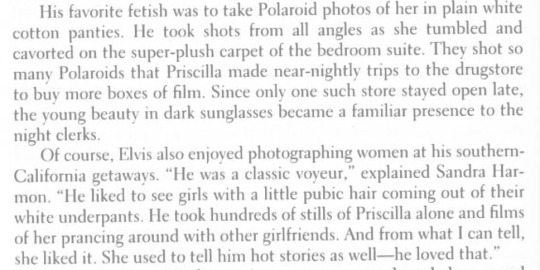
But according to Joe Esposito and Marty Lacker, who once watched all of the tapes while Elvis was out on tour, he seldom appeared in any of them, and if he did, he was clothed
(excerpt from “Good Rockin’ Tonight” by Joe Esposito)
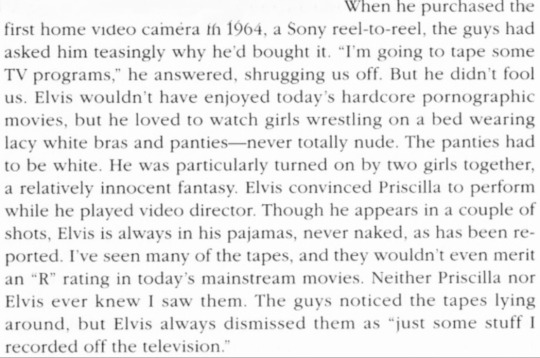
Billy Smith did say, however, that he found a tape where it showed Elvis and a girl quote “going through the motions” (catch me raiding the Graceland archives to find it)
Elvis' affinity for the Polaroids he took of Priscilla continued throughout the 1970s, Linda Thompson even mentions in her book that he would show them to her. He would also carry them around in a samsonite case pictured below⬇️
(I’m sorry but the fact that he traveled with them is so funny to me 😩, he was serious about them Polaroids!!)
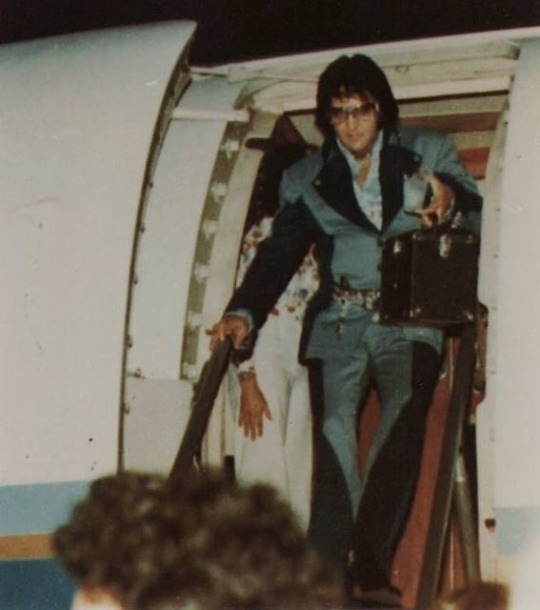
And there is also the notorious story of Elvis boarding a commercial plane, narcotics badge in hand, to prevent an employee referred to as “Hamburger James” by the Memphis Mafia and “Fetchit” by Linda Thompson, from escaping with a few Polaroids of Priscilla that he snatched and a ring of Elvis’, although Linda did say Elvis only really cared about the Polaroids. Elvis dragged Hamburger James off the plane, roughed him up a little, slapped him around, before eventually he letting him go
As the adult film industry evolved in the 1970s, his preferences definitely evolved with it. I'm still shook that Linda Thompson name dropped the two p*rnos that they watched together, but of course when I initially read her book my curiosity got the best of me and I watched what she named… and I'm still scarred 💀 (iykyk)
I wish I could find the comment, but someone on another post mentioned how in the 1970s, that sort of p*rn was "in" and quite avant-garde for the time period. Although the two p*rnos Linda mentioned seemed a little outlandish to me they were actually among the top five highest grossing of the 1970s, so if your perception of Elvis changed after watching "the Devil in Miss Jones", don't worry because everybody was watching it lmaoo. If you want to get another idea of what was highly regarded in the adult film industry at that time, know that "D**p Throat" starring Linda Lovelace was the most popular film of the 1970s, and the whole plot is that she had a medical condition where her cl*toris was located in her throat... they were innovative back then with their ideas, to say the very least 👀
Elvis’ personal copy of “d**p throat” ⬇️
however I do believe that kind of p*rnography was something that Elvis only indulged in for a few years in the early to mid 70s, and I believe that based on a story that Larry Geller told about Elvis which occurred in the late 70s⬇️

I think Elvis always tried to be a really moral person, but with his lifestyle, there were times when he went "hog-wild," as Lamar put it, like on his army furloughs to Paris and going through all the Lido, Folies Bergere, and Crazy Horse dancers, and his weekends off in Germany at clubs like the Moulin Rouge. Towards the end of the 70s, I believe he was far more focused on finding his soulmate and willing to abstain from things like s*x and p*rnography in order to do so. Basically this man was too occupied with his spiritual books and search for lasting love to be interested in watching "d**p throat” 😂
#read at your own risk#never did I think I would give a history of elvis and his p*rn preferences but here u go#we are just going to ignore the other kind of p*rn that Elvis watched in the 60s that Billy mentioned in the Memphis mafia book#if you know you know 😭#danish#elvis presley#elvisaaronpresley#elvis#elvis history#elvis asks#elvis fans#elvis book excerpts#elvis photos
104 notes
·
View notes
Text
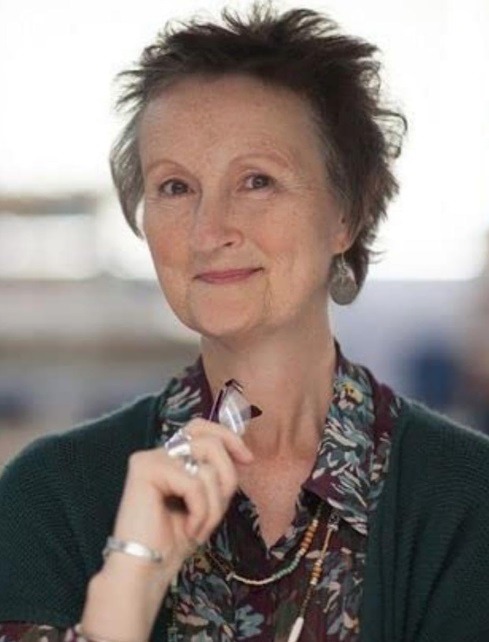
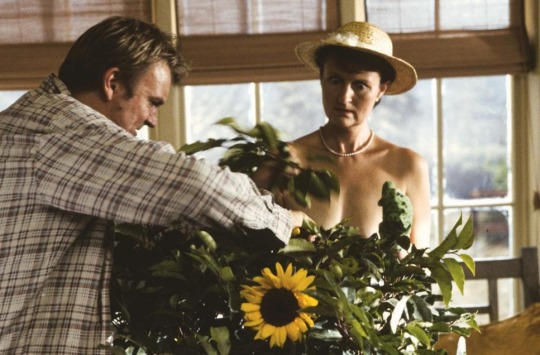
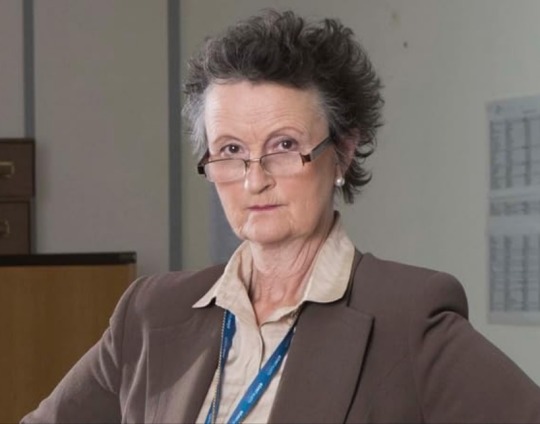

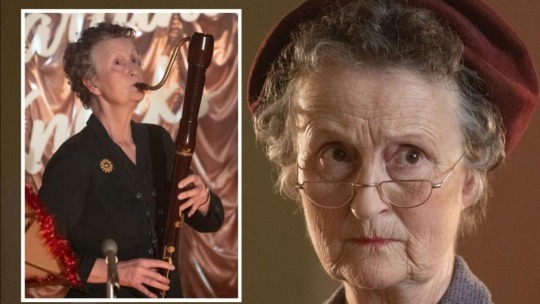
Happy Birthday Scottish actress Georgie Glen.
Georgie was born in Helensburgh on April 20th 1956 and as a child had little interest in appearing in school plays. She studied graphic design at Glasgow School of Art and moved to London in her mid-twenties to design book covers for the Thames and Hudson publishing house.
Looking for other interests she joined Floodlight Council, an organization set up to bring out adult’s artistic skills and then became part of the Questors Theatre Company in Ealing, West London. Here she met the late Alan Rickman - who, like Georgie, had a background in design before treading the boards - and he encouraged her to follow her acting ambitions. As a result she enrolled at the Bristol Old Vic drama school and on graduating had her first job at the Wolsey Theatre in Ipswich.
Even then she felt, somewhat modestly, that she did not have the looks for a leading lady but ever since her television debut in 1988 she has been a reliable supporting player in virtually every type of show from sketch comedy to period drama, notably in a recurring role as doughty Sergeant Jennifer Nokes in Heartbeat and the liberal, kindly teacher head of History, Audrey in'Waterloo Road - filmed in her native Scotland.
Indeed she may be said to be one of the first ladies of character acting and though her film roles have again always been in support of bigger names she has proved herself to be a scene- stealer par excellence, as one of the more enthusiastic in Calendar girls alongside Helen Mirren and Julie Walters.
As I said earlier she has been in every type of show, to name a few we have comedy roles in Harry Enfield and Friends, Alas Smith & Jones and Little Britain, drama series and films are two many to mention them all but there are dozens, the pick of them include Taggart, of course, Peak Practice, Doctor Findlay, Mrs Brown, Shakespeare in Love, Silent Witness, and I think a lot of you will maybe “say” oh yes, when I tell you that she was the Judge in The Victim in 2019, an excellent four part series set in Scotland also starring John Hannah and Kelly McDonald, and she was Denise in the brilliant Channel four show Damned!
23 notes
·
View notes
Text
IMAGINARY FILM TETRALOGY: THE MAGNIFICENT X-MEN
@s10127470 @a-roguish-gambit @knivxsanddespair @thealmightyemprex @the-blue-fairie @themousefromfantasyland @professorlehnsherr-almashy @amalthea9 @thestreamweaver
Having recently read the 1991 and 1994 scripts for unproduced X-Men films (the first titled Wolverine and the X-Men and the second titled simply X-Men), I started to think which approach I would take in idealizing an X-Men film series, taking some elements I enjoyed from the unproduced scripts, while cutting out others and also mixing up my own ideas.
For me personally, the main appeal of the X-Men compared to other Marvel hero teams is how vast their own universe is, which gives the chance to not be limited to other super hero genre conventions of good guys fighting bad guys of the week to save the world from a catastrophe, but also takes many chances to deescalate the conflict to small stories that take the influence of other genre sources: romantic melodrama, gothic horror, science fiction comedy, urban fantasy, high school drama and work situational comedy.
So far the science fiction thriller and action comedy genres have been the aproach that studios and filmakers have taken to be safe.
I would like to give the X-Men a chance into the potential for exploring the urban fantasy, romance and horror angles, with a sprinkle of light sci fi and comedy, into a viewer’s digest of the existing story material provided not only by the main Uncanny X-Men comic books, but also take some elements from The New Defenders #125-152, Excalibur and the graphic novels and limited series staring the characters, and I would call this encarnation The Magnificent X-Men homaging the movies The Seven Samurai and The Magnificent Seven.
There would be relationship overhauls where characters who only casually flirted, had a will-they-or-will-they not long running unresolved romantic tension (that while can be taken for granted in the long running medium of comics, is not very satisfactory in the formats of movies and TV shows) would be official couples in the adaptation.
The timescale and timeline would avoid convolutedness by having characters who, in the comics, were originally clones or alternate timeline children to be children born in the main movie timeline born and raised by previous characters that while mentioned as important, are not the main characters of the narrative, exploring the idea that as a group, the X-Men have a history that goes back to the 60s, where there were founding figures, partisan dissidences, characters went to college, graduated, retired from the battlefield to get married and raise children, or died while fighting for mutant rights.
The influences and narrative style would come from shows like Gargoyles, The Real and Extreme Ghostbusters, and movies like Streets of Fire, 1990 Teenage Mutant Ninja Tutles, Wesley Snipes Blade and Guillermo Del Toro's Hellboy, being a rock and roll fable exploring the communities and culture built by mutants beyond just the Xavier Mansion in the cities undergrounds, where they built their own clubs, bars, safe spaces to live together, while borrowing fashion and architecture from the 80s and 90s with a little touch of the 50s, in contrast to the swashbuckler fantasy and circus influence, borrowing from Earth 5311, that would be highlighted in the battlefield costumes of the X-Men team members themselves.
There would be a total of four movies, and the main team would be formed by:
ALISON BLAIRE (DAZZLER)
ANNE MARIE (ROGUE)
ORORO MUNROE (STORM)
RACHEL GREY SUMMERS (PHOENIX)
ELIZABETH BRADDOCK (PSYLOCKE)
JAMES LOGAN HOWLETT (WOLVERINE)
HENRY PHILLIP MCCOY (BEAST)
KURT WAGNER (NIGHTCRAWLER)
PIOTR RASPUTIN (COLOSSUS)
WARREN WORTHINGTON III (ANGEL)
VISUAL CONCEPT ART INFLUENCES
DAVE COCKRUM




MARIE SEVERIN
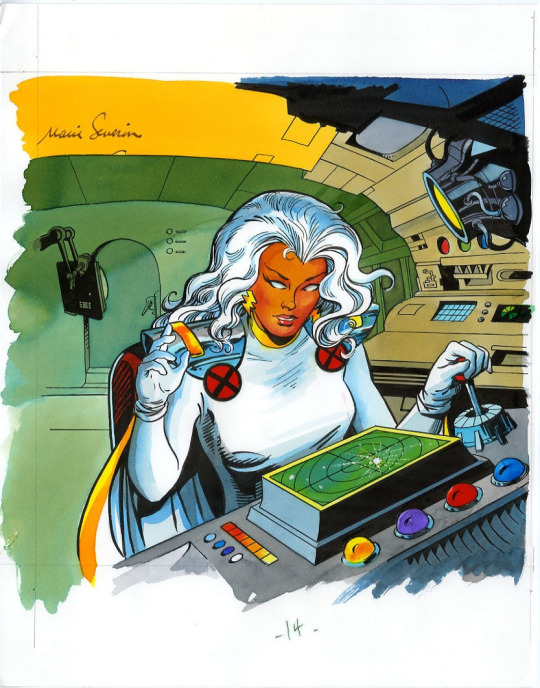


ALAN DAVIS

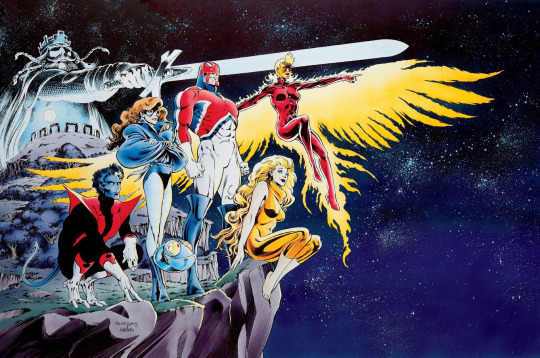
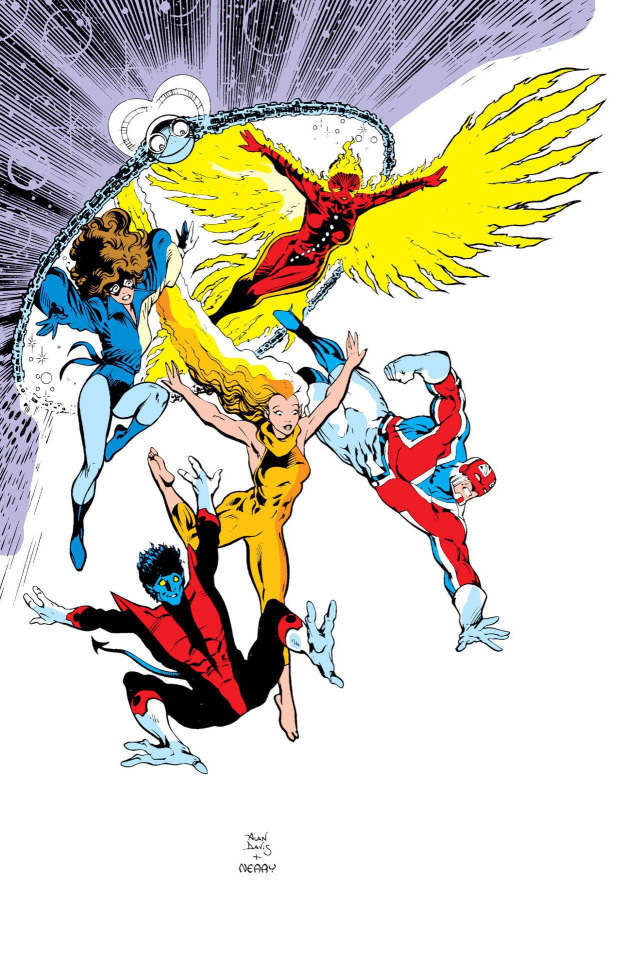
PAUL MARTIN SMITH
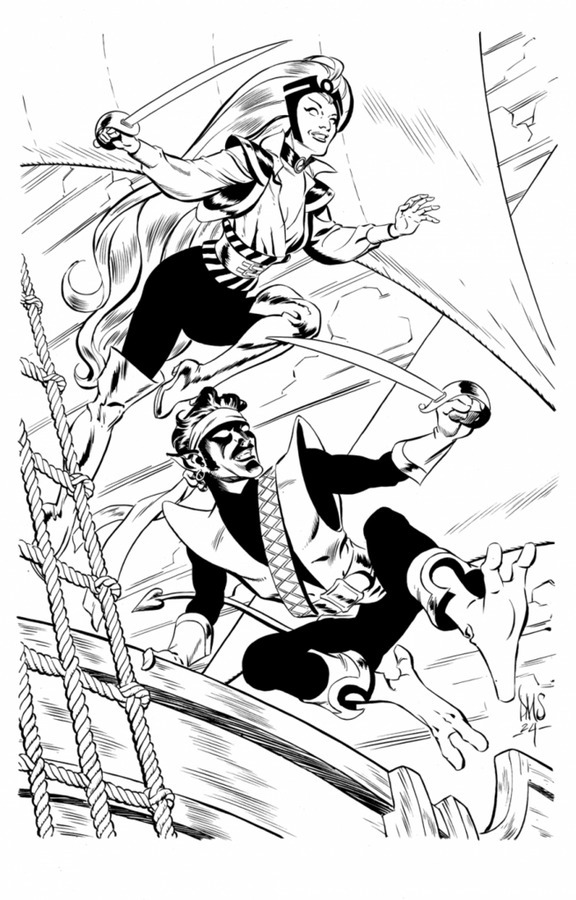
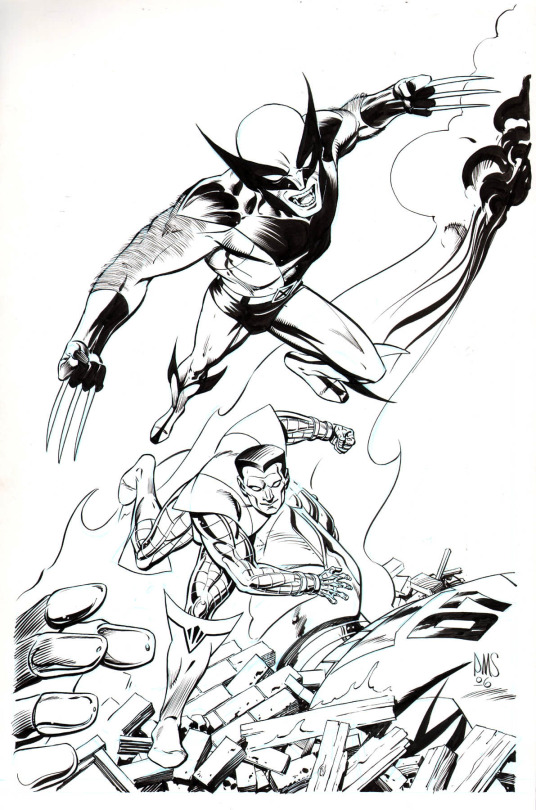

BRENT ANDERSON
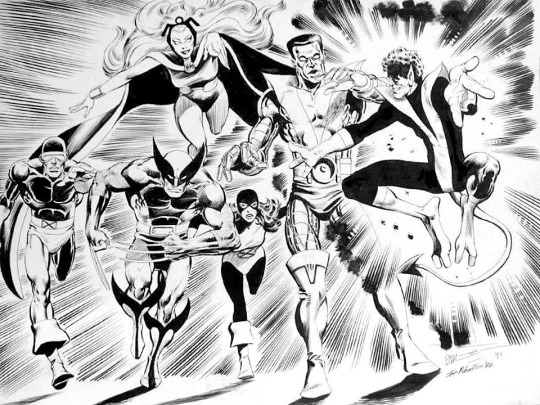

I will be slowly thinking of the plots that would narrow down each movie as time goes on.
#x men#mutants#the new mutants#the magnificent x men#marie severin#alan davis#paul martin smith#paul smith#brent anderson#dave cockrum
8 notes
·
View notes
Text
Hamefura theory : FL!Sora and HF!Sora
Sorry I wasn't able to be there very often recently since I'm very busy >< I leave very early and come back very late.
Please read it before reading this theory or else you'll be lost :
Who's the reincarnated ?
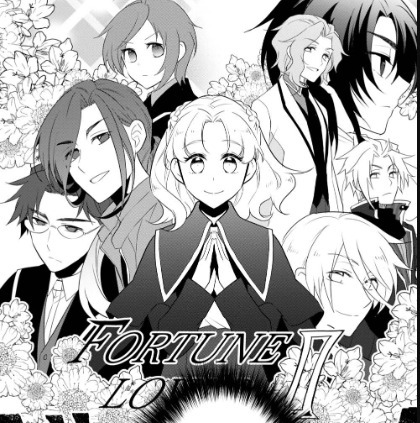
Okay, first : What do we know about FL!Sora ?
The only things we know are that he is an orphan born in the slums of Ethenell with no surname and he has dark magic. He is the playboy type in Fortune lover and he meets the heroine on his way to the Ministry of Magic the day of the entrance ceremony. The game never mentionned (at least the things we know from the note) how he ended up here. It only says it was "after an incident" so, what was this incident ? Since Catarina is exiled in Fortune lover he couldn't have kidnapped her during the school festival and ended up in custody after that, so I think it's not related to that. (We don't know if the school festival is part of the game). Moreover it couldn't have been the same event with Maria since the game explicitely mentions that Sora and Maria met for the first time at the Ministry.
Another theory could be that the kidnapping happened with Mary or Suzanna but I don't think it's the case. One of the reason why they chose Catarina was that she doesn't have much magic power so they could have use dark magic on her if necessary, Mary and Suzanna both have very strong magic and I don't think they would be easily tricked and caught. Moreover it would have been a bit incoherent since Mason wanted to make Geoffrey king so I don't see why they would kidnap his fiancée :/ especially since the two don't really have a "lovey dovey" reputation. And Mason didn't really seem to see Alan as a possible candidate for the throne so it would be useless to kidnap Mary, Mason may not be smart but he is not completely stupid either.
So it's another incident that led Sora to end up working for the Ministry.
Plus where did Sora get his dark magic ? Is this related to the "incident" or something else ?
One important thing is that Larna isn't shown in the game and she is not the director of the Magic tool Department since her "benefactor" is not in the game. It was also mentionned that she has been the director of this Department for several years and she has been able to keep up thanks to Geoffrey's support. Strangely, in the game, the director of the Magic tool Department is a mob character whose face is completely unknown (Catarina said she never saw him in the Ministry)
Since Larna isn't in the Ministry she couldn't have taken Sora in her Department and so she also never gave him the surname "Smith", yet in LN14 the mob character calls him "Sora Smith". And if Larna isn't here it also means that the Magic tool Department is very different (the reason why it was full of weird people was mainly because of her)
(PS : Most of the things I will say are based on the theory that Larna's benefactor and Sora's father figure are the same person.)
Sora's route ? :
I think Sora's route is pretty similar to Keith's in the game : He approaches the heroine, she turns him down, he becomes interested in her, they become friends and they turn into lovers after an event or a confession (or the two)
Is the Sora we know different from FL!Sora ? :
I personally think it's the case. At first sight it doesn't seem like it but in the game he seems to play with women left and right like a typical playboy and may have done the same with the heroine because he found her cute, while in the series he seems to only flirting with women as part of his job or to use them and doesn't seem to particulary love it, he finds it "entertaining" at best and he doesn't have such thing as a hobby. (at least it was his POV) and he thought all of that before meeting Catarina. In short, in the game the "playboy personality" seems to be part of him while in Hamefura his real personality seems to be more the "casual and cool big brother". So I think the reason of this change may be the man he met in the slums, and as a result he is a better person in Hamefura than in Fortune Lover.
The impact of this man in Sora's life ? :
The reason why Sora is so knowledgeable is partly thanks to this man that acted like a paternal figure to him, Sora experienced love for the first time thanks to this man so it may have had a big impact in his personality and life since Sora got caught and sold because he tried to steal medecine for him. I really want Catarina to ask him what he would have become without this man. So if this man wasn't here Sora shouldn't have been caught in the first place and ended up being sold as a slave in other countries but it seems that it somehow happened for some reason... It's almost as if the events of the game still end up happening albeit in a different way since Catarina is different from her original version and because of the changes caused by that mysterious person.
Sora also said that each time he was depressed and wanted to scream insults at the world, it was this man's words that kept him going and helped him to stay strong.

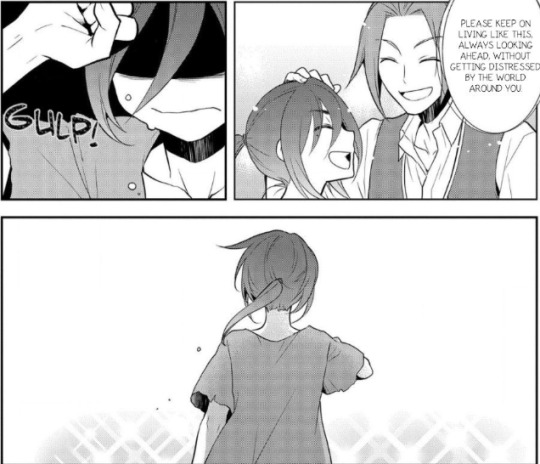
What are these impacts in the story ?
He kept his cool way of thinking and so never became a bad person
Sora was unconsciously trying to go far away from Ethenell because he didn't want to remember that man and how being caught kept him from being by his side when he died.
He was considered more valuable as a slave because he knows how to write, read and count.
So, what's the mysterious incident that made him working for the Ministry of Magic ?
I can't say for sure since we don't have much informations but I guess that at some point he was involved in an event with some noble of the dark magic organization in Sorcier, was forced to obtain it and after a minor event he was caught and ended up in the Ministry of Magic but we have not hint about what could be this event, only that it is definitely related to dark magic.
Why does it make Sora an important character for the plot ?
The author may not show it but Sora is very important for the Dark magic plot (though not as much as Raphael) because these two are the characters that are the most involved in Dark magic and among all the characters (at least it's my opinion) Sora is the one with the most realistic personnality.

So if his paternal figure really is a reincarnated then Sora will have an important role in the dark magic plot.
Ah, and something reallly surprised me in LN9 : Before meeting Arnaud again Sora had a dream about him when they were children, like Catarina with her dreams of her previous life. I found it very intriguing...And Sora said that even if he doesn't believe in divine powers he thought that it must have been a "sign from above"
#my next life as a villainess#hamefura#otome game no hametsu flag#bakarina#katarina claes#hamefura light novel#light novel#my next life as a villainess: all roads lead to doom#otome game no hametsu flag shika nai akuyaku reijou ni tensei shiteshimatta#sora smith
13 notes
·
View notes
Note
Hi there! I’m curious to know have there been a lot of celebrity sightings at the Merrily shows? Thank you for all you do with this wonderful account.
There have been a lot of celebrity sightings at the show, and also off-Broadway, but only a few photos of celebrities have been posted on the official Merrily social media accounts (Lin-Manuel Miranda, Sutton Foster). Unlike other productions, Merrily continues to sell out every show, meaning that they don’t need constant PR so they rarely promote who is at the show.
Recent guests have included Melissa McCarthy (who went backstage and met the cast), Al Yankovic, Idina Menzel, Kristen Bell, Neil Patrick Harris, Jessie Ware, Jon Bass, Lucy Hale, and many Broadway actors and friends. A New York Post sightings column referenced (probably via the PR team) a range of actors who had been to the show early in the run (Maya Rudolph, Julia Louis-Dreyfus, Paul Rudd and Hugh Jackman): https://jgroffdaily.tumblr.com/post/731387571451658240/also-this-one
During the Buzzfeed puppies interview, Jonathan mentioned that Mandy Patinkin and Bernadette Peters, amongst others, saw the show off-Broadway.
Zachary Quinto was at the opening and came back a few weeks later with Sarah Paulson and Jessica Lange. Others at the opening included Anna Wintour, Cynthia Erivo, Lena Waithe, Raul Castillo (with Alexis Forte) and Gideon Glick.
Toby Onwumere saw the show with some friends, including Jonathan’s former partner, Tima Botwin.
There was a weekly summary posted on this account of celebrities seen at the show during the off-Broadway run.
Update: Whoopi Goldberg was at the show on 29 November and took photos with the cast. Rachel McAdams was also at the same matinee. Alan Menken and Hillary Clinton were at the 30 November show. David Fincher was at a recent show. Ariana Grande and Jonathan Bailey were at the 6 December evening show. Josh Gad and Andrew Rannells were at the 13 December matinee. Dave Bautista, Maude Apatow, Renee Rapp, Rachel Bloom, Jules Hough, Alan Mencken, Hillary Clinton. Brian J Smith, Harvey Guillen, Laura Linney, Karan Soni, Marcia Gay Harden. Paul Mescal, Michael Kors, Russell Tovey. Patti LuPone, Woody Harrelson, Betty Who. Glenn Close, Gayle Rankin.
35 notes
·
View notes
Text
How 80s Rock (and rock in general) influenced The Sandman
Okay, this is a list that has been mostly confirmed. I won’t add speculation like “Robert Smith is the basis for Morpheus’s hair.” or “Peter Murphy is the basis for Morpheus.” This will only contain things that have been confirmed in various sources. Lucifer - Meant to look and sound like David Bowie circa 1969. (Confirmed multiple times by Neil Gaiman. In fact Michael Sheen is doing a David Bowie impersonation while voicing Lucifer for The Sandman audio drama adaptation. Neil Gaiman has even said that Gwendoline Christie looks more like David Bowie than Tom Ellis does.)
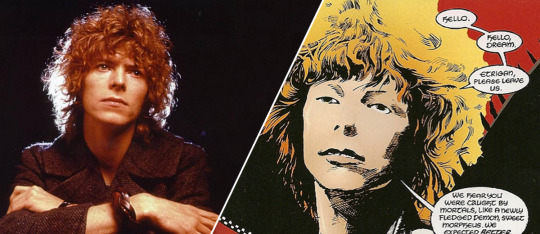
Death of The Endless - Originally Neil wanted her to resemble Nico but she ended up looking like the Cinnamon Hadley instead. In The Sandman Overture, according to J. H. Williams III, his depiction of Death is meant to resemble Siouxsie of Siouxsie and the Banshees.
John Constantine - Though not an original creation of Neil Gaiman (first created by Alan Moore), John Constantine was supposed to have resembled rock star, Sting. (roughly 1985 look.)

Desire of The Endless - Desire was, at least partly, inspired by the Duran Duran album cover Rio. The cover was painted by Patrick Nagel and designed by Malcolm Garrett. When Neil was starting out as a writer one of the first things he wrote was a book on Duran Duran.

Another inspiration for Desire came from Annie Lennox’s look for the music video “Sweet Dreams (are made of this).” Ironic considering the title.

Delirium of The Endless - Though Neil Gaiman did not meet Tori Amos until after he had created Delirium, he insists that Delirium was somehow inspired by Tori Amos.
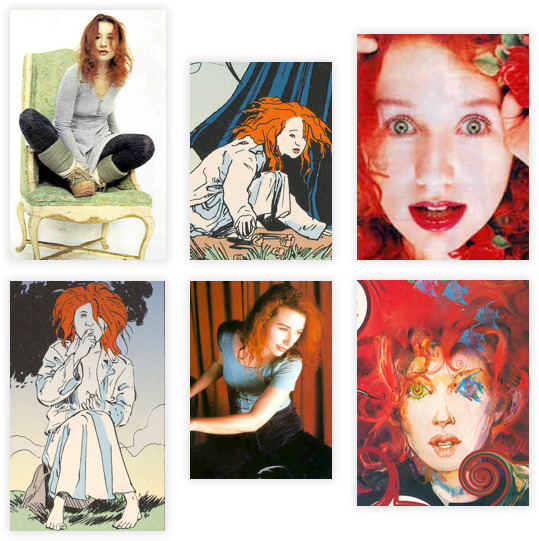
Men of Good Fortune - The issue / Chapter of The Sandman called Men of Good Fortune is named after a song by Lou Reed. Sunday Morning - The issue / Chapter called Sunday Morning is also named after a Lou Reed (Velvet Underground) song. So that is two Hob Gadling chapters named for Lou Reed Songs. Beginning to see the Light - The Sandman: A game of You issue / chapter named Beginning to see the Light is also named for a Velvet Underground song. Dream songs - Roy Orbison’s In dreams plays in The Sandman issue Dream a little Dream of me. The issue / chapter is named after a song. And Mr. Sandman (Bring me a Dream) by the Chordettes is also in that issue. The Skye Boat song - Not actually a rock song by any interpretation of the term but I thought I’d mention it. Many of you may recognize the Skye Boat song as the “theme song to Outlander.” This song is referenced in The Sandman: A Game of You. Labyrinth - Neil Gaiman is an admitted fan of the Jim Henson film Labyrinth. A friend of mine insisted that Morpheus is “Goth Jareth” (David Bowie’s character in Labyrinth). And a Game of You has some plot similarities to Labyrinth. Labyrinth has six original songs by David Bowie.

Queen - It’s no secret that Neil Gaiman is a Queen and David Bowie fan and tends to reference both whenever possible in his writing. The Sandman Brief lives is no exception. When Delirium wanders into a night club two men are discussing the death of Freddie Mercury, the lead singer of Queen, and one mentions someone making the crude joke of “Another One Bites the Dust” (a popular 1980 Queen song).

There are many more rock music references in The Sandman but these are the ones I could remember off-hand. Think how strange it would be if all of these (80s) rock elements were removed from The Sandman somehow.
And this is a more recent connection but John Cameron Mitchell (Hedwig and The Angry Inch) plays Hal AKA Dolly, the drag queen, in The Sandman Netflix series storyline called The Doll’s House.
83 notes
·
View notes
Text
My Fan Theories for Alan Becker's AvA 6 - Episode 2
It gets revealed that The Dark Lord is not actually evil.
Like Red before, Dark got possessed/corrupted and it somehow revived/enhanced Alan's code inside him. Chosen must've sensed this, because I think he held back a lot in the Showdown Episode.
He was named The Chosen One, damnit! He's supposed to level up along with his enemies. He can't possibly lose a fight.
He sensed something was wrong, but is not smart enough to save Dark.
victim actually works for the government/police.
When they summoned Alan's cursor during Showdown, it created public unease in the city. Like, A CREATOR IS ACTUALLY HERE!
The cursor was big enough to be spotted in the city. And when someone came to investigate, all they saw were laser marks on the ground and a missing mountain.
Naturally, the #1 suspect would be The Chosen One. In the Wanted Episode, when he saved the office worker from the falling debris with his lasers, the office worker either (a) covered his eyes to look at the bright sky, or (b) actually saluted back to Chosen.
I think it's B. So, people in the city are actually familiar with the rocket man in the sky. He would've reacted differently if it's the first time they saw Chosen. And don't get me started with the nonchalant reaction of the Corn Dog Guy.
So with this in mind, how would anyone capture a what is essentially, a virtual god? They will go for the smartest man they know, produces the most advanced technology, and who obviously has connections with Chosen since they look exactly the same.
I don't think victim is out for revenge. Like, why would he wait all this time to get back at Alan? He has all the resources now, his own company (that sells TVs), like, what else could he ask for?
I choose to believe in victim. He's the type to defend himself rather than hurt someone else. He even stopped the 3 members of the rocket group from killing The Second Coming, and asked Agent to bring him alive.
They even unpaused Second at the end. Which makes me believe that victim would want to talk/negotiate with him. What victim needs is INFORMATION, and he's not getting that from The Chosen One.
victim is actually looking for The Dark Lord
I believe Second's powers has something to do with antivirus and codes. And firing that mega-laser actually disabled Alan's Code, and in fact, DID NOT KILL Dark.
Dark surviving off-screen is not really a far stretch. Because, it already happened before in the Flashback Episode.
Now, if you take into consideration all the stuff I mentioned above...
The rocket group approaches The Chosen One, asking for The Dark Lord.
Chosen, remembering all the crimes they did during the Internet Conquest, fearing for his friend, he gets apprehensive and starts to escape. Instead of letting him get away, they had to use all the tools at their disposal. And then enter the epic chase scene from Wanted.
Other sub plot theories
Purple will show up and help them, since he actually lived in the city before, judging by the location of his Mom's grave. Purple would know about the rocket group, and can guide/help the others to stop them.
We'll see Red cry for the first time.
The fight will go like this:
Green vs. Agent Smith - both great with staffs, spears, or any long-ranged weapons, I also think that Green would be fast enough to match Agent
Red vs. Hunter/Primal - pure strength and heavy muscle
Yellow and Blue vs. Ballista/Pixel - G U N S
Purple vs. Hazard/Sign - being trained by his father Navy, Purple is actually really good at hand-to-hand combat
Alan's Giant Cursor form is not going to show up this time.
victim is going to teach Second about his powers.
---
God, I can't wait for the next episode.
#ava theory#alan becker#animator vs animation#ava 6#ava tsc#ava second coming#ava season 2#ava the second coming#ava chosen one
28 notes
·
View notes
Text
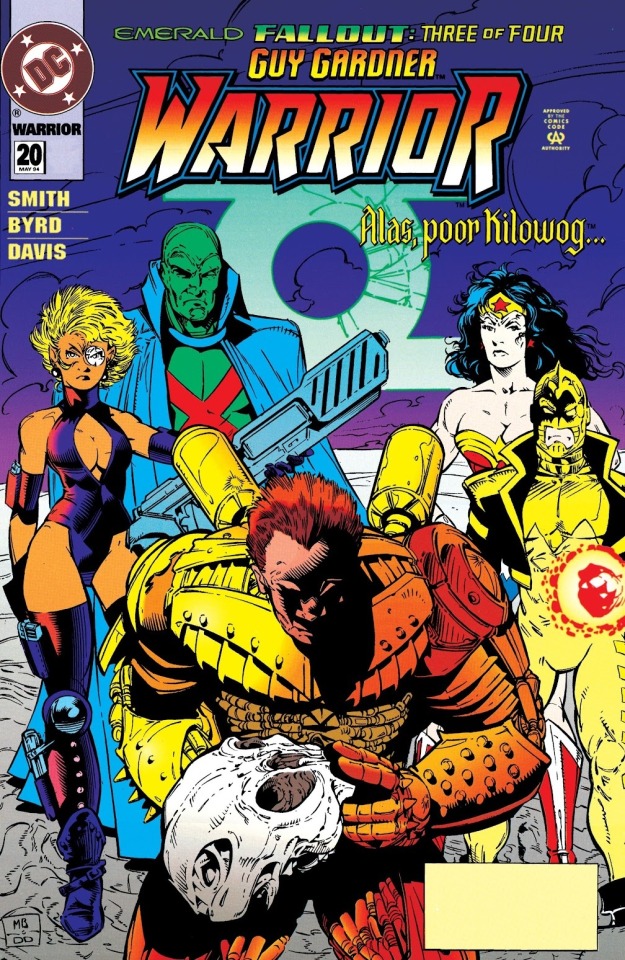
Guy Gardner: Warrior #20 (May 1994)
"EMERALD FALLOUT," Part 3! The "Emerald Twilight" tie-in storyline kicks into high gear as Guy is joined by the Justice League, some former Green Lanterns, a (not so) secret villain, and, at last, new writer Beau Smith! Nothing against Chuck Dixon as a writer, but it's under Smith that Guy Gardner truly became a Warrior.
At the end of GG:W #19, Alan Scott met Guy at the JL's HQ to ask for his help with figuring out what the hell's going on with the Green Lanterns these days. Alan mentions the green dome that covered what remains of Coast City (GL #48), and Guy answers: "Whaddya mean 'remains'?" Yes, Guy is just learning that a major American city where he lived for several years has been totally destroyed...
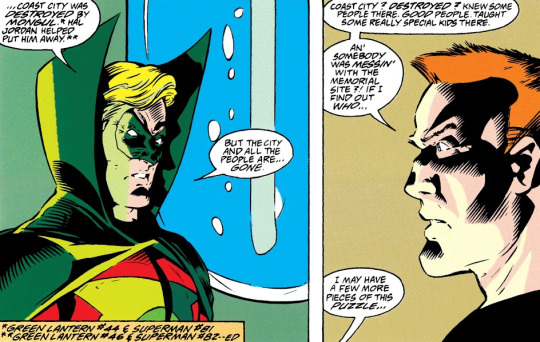
...but, to be fair, he'd been replaced by an evil alien clone when that happened (this means that the Guy who got some good zingers at Aquaman's expense during Coast City's memorial in Superman #81 was actually the clone).
While Alan and Guy are talking, Colos of the Darkstars ("that second-rate, low-rent Green Lantern wanna-be's" as Guy puts it) also stops by to let everyone know that several GLs, including good ol' Hal Jordan, are missing. Others have been found -- dead. Guy insists, in not very polite terms, that he should be the one to lead a group to planet Oa to find out what's happening, but then Wonder Woman intervenes and... agrees with him?!
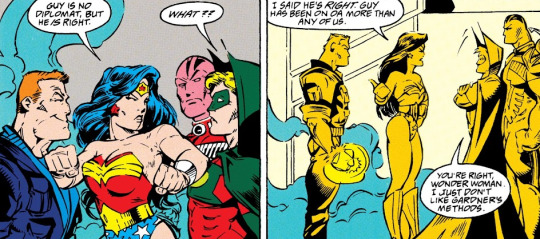
So, it's decided that Guy will lead a possibly suicide mission to Oa because he's the only one in the League who knows his way around the place. Martian Manhunter, Captain Atom, and The Ray are also coming along. Ex-Green Lantern (and Hal's ex) Arisia is also at the JL HQ, for some reason, and wants to join Guy's Suicide Squad, but Guy won't let her because she's got no powers and he already feels like he's babysitting The Ray. Right before they're about to leave for space, though, Arisia returns with a giant Cable-style gun, ankle pistols, and, perhaps most importantly from Guy's perspective, a far more revealing outfit. He lets her come, obviously.
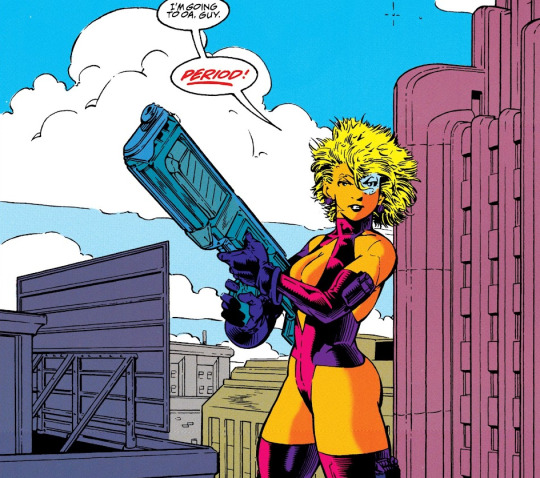
(And pouches, but I didn't really need to tell you about the pouches.)
As the group approaches Oa, they run across a ton of GL corpses floating in space. It's only once Guy is actually down on the planet and sees the destruction first hand that he realizes his vision of Hal trashing the place while fighting Sinestro (GG:W #18) must have been real. This leads to the heartbreaking moment from the cover when Guy finds Kilowog's skull on the ground, where Hal left it after killing him (GL #50), and cries for the big poozer. Martian Manhunter and Arisia are also pretty shaken up, but they don't have a lot of time to mourn before everyone is attacked by green monsters.
After several pages of all these heavy hitters (and Arisia) being completely owned by green goop, we find out who's behind all this: HAL JORDAN!
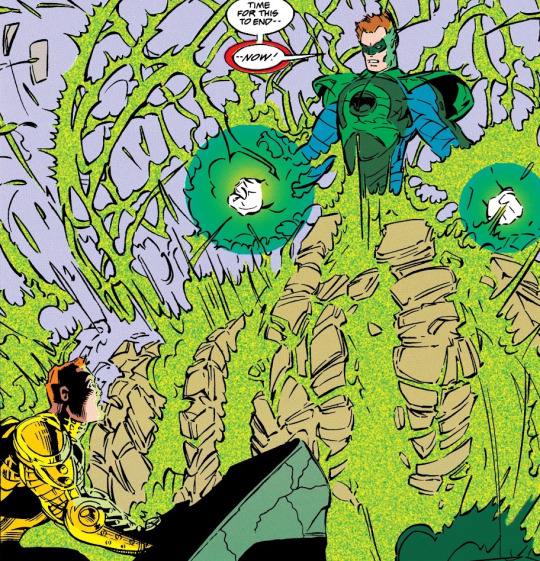
Which we already knew, because we've been reading Green Lantern, but it's still a cool "reveal." TO BE CONCLUDED!
Plotline-Watch:
Ice also wants to come on the mission to Oa, but Guy turns her down far more gently than he did with Arisia, telling her she can't come because he simply can't face the possibility of something bad happening to her (plus he wants her to take care of his crippled supervillain brother). As he leaves, she says "Good-bye, Guy" and drops an icy tear on the floor. I like this scene because it doesn't hide the fact that Guy is a giant sexist, but his genuine concern for Tora still makes him sympathetic. The "good-bye" is particularly poignant in light of near future events...
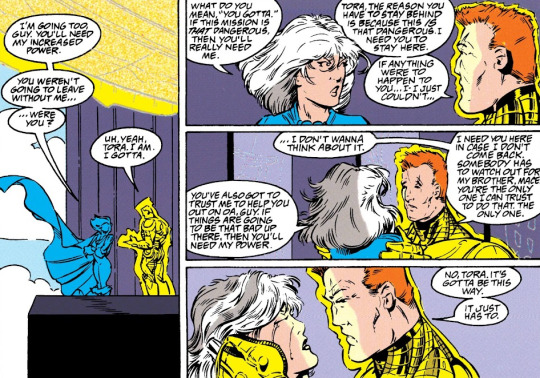
Before reaching Oa, the group runs into another former Green Lantern: Probert the Bad One, the barbarian GL that Beau Smith introduced in GLCQ #8. Probert is honoring the last wishes of dead GL Graf Toren by "igniting his path to his ancestors" (setting his corpse on fire, I guess?) and is glad to see Guy there, since Graf had spoken highly of him. Smith has said that he had plans for Probert to become a sort of mentor to Guy, but sadly that never happened; he'll only make a couple of appearances after this.
Looks like Probert didn't bother checking Graf's pulse before performing final rites on his body, since Geoff Johns would reveal much later that he was captured alive by the Manhunters after this. Actually, I don't think Johns read this issue: at least one of the GL corpses we see floating around (Chaselon, the orb guy) would be shown to be alive during Johns' run without explanation.
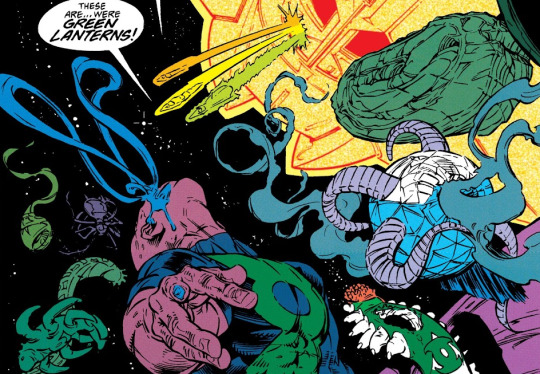
Ironic that Guy criticized General Glory for not paying attention to the news in GG #16 (since Glory hadn't heard about the whole "evil clone" thing) when he himself doesn't watch them at all, it seems. Based on what's been going on in the Superman titles, it's been a few weeks since Coast City blew up. Hard to believe something like that would be out of the news cycle in that time, unless there was some sort of presidential sex scandal and/or celebrity murder case going on.
The Wonder Woman interaction is interesting because another thing Smith has said in interviews is that he wanted her and Guy to become an item, but not really, but yes really. His idea was that, for whatever reason, Guy and Wondy would have to pretend to be romantically involved as part of some mission, with the obvious hilarity resulting from DC's foremost macho knucklehead "dating" a feminist icon. But then, at some point, it'd be hinted that they'd actually started developing feelings for each other. Maybe it's for the best that this story never happened, because the resulting WW/GG fanfics might have destroyed the nascent internet.
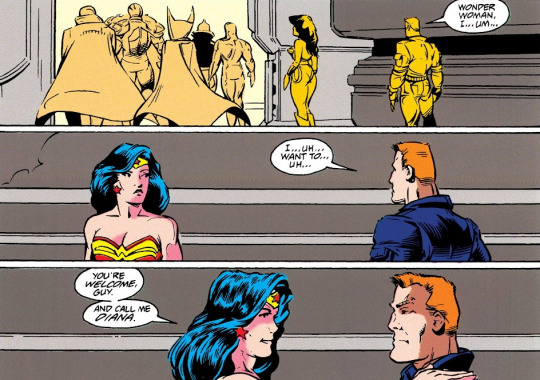
I like this moment with Guy telling everyone they better be confident in their "manhood, womanhood or whateverhood" if they're gonna go on the mission, after overhearing The Ray trying to give him some sass. Guy Gardner says trans right???
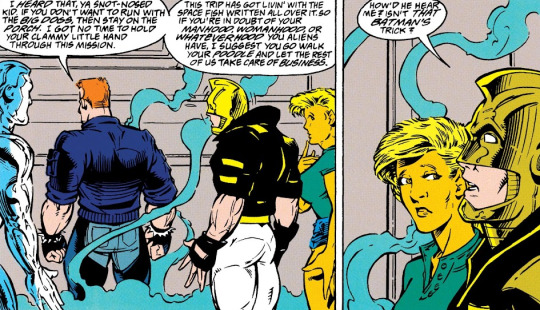
NEXT: Gardner vs. Jordan!
#green lantern#beau smith#mitch byrd#guy gardner#alan scott#darkstars#justice league#wonder woman#martian manhunter#captain atom#arisia#the ray#ray terrill#ice#tora olafsdotter#probert the bad one#hal jordan#kilowog#rip kilowog#rip graf and orb guy who aren't really dead too#whateverhood
7 notes
·
View notes